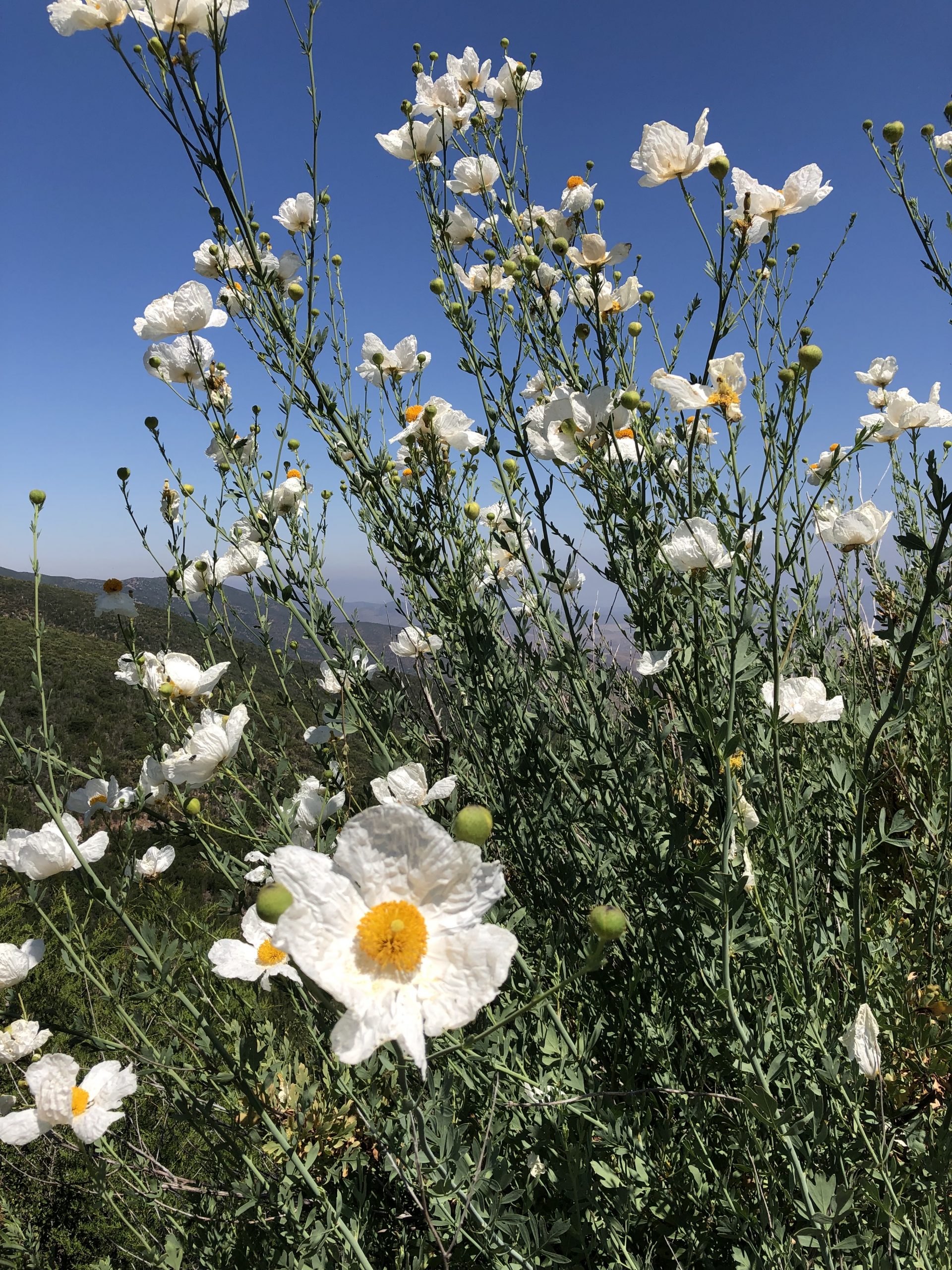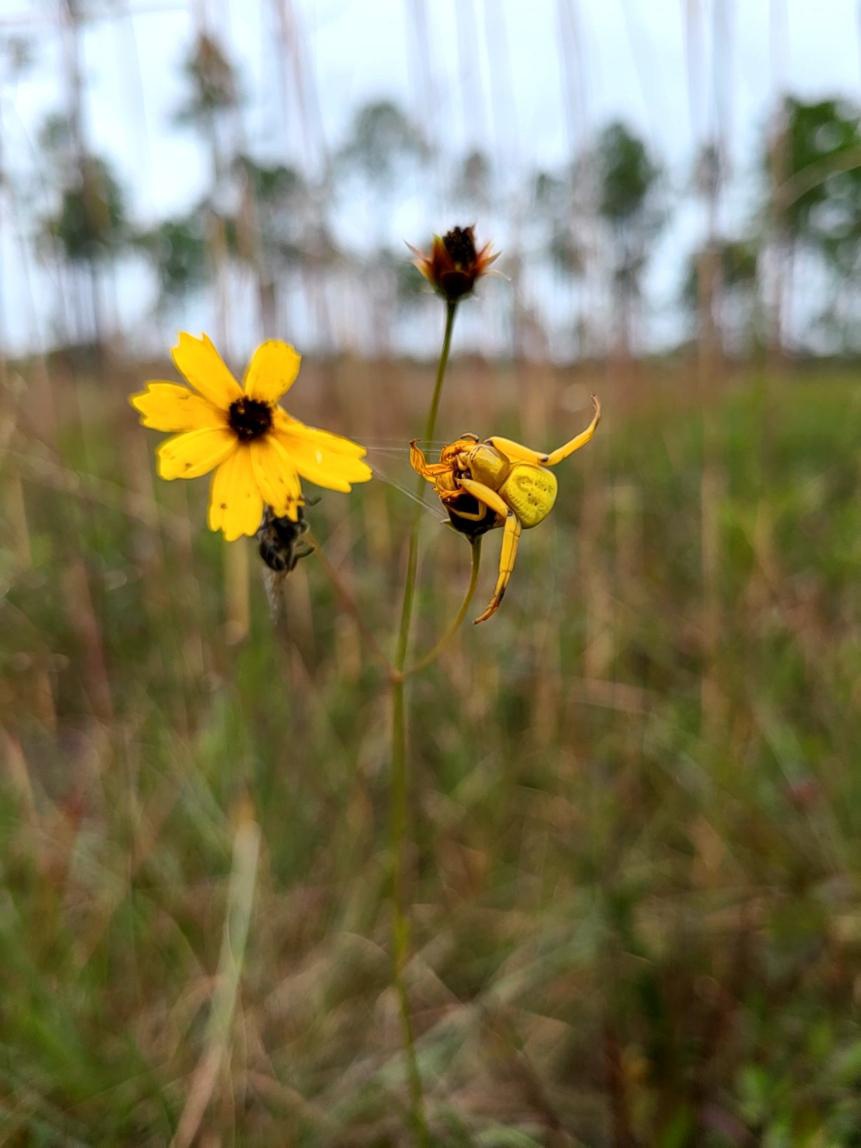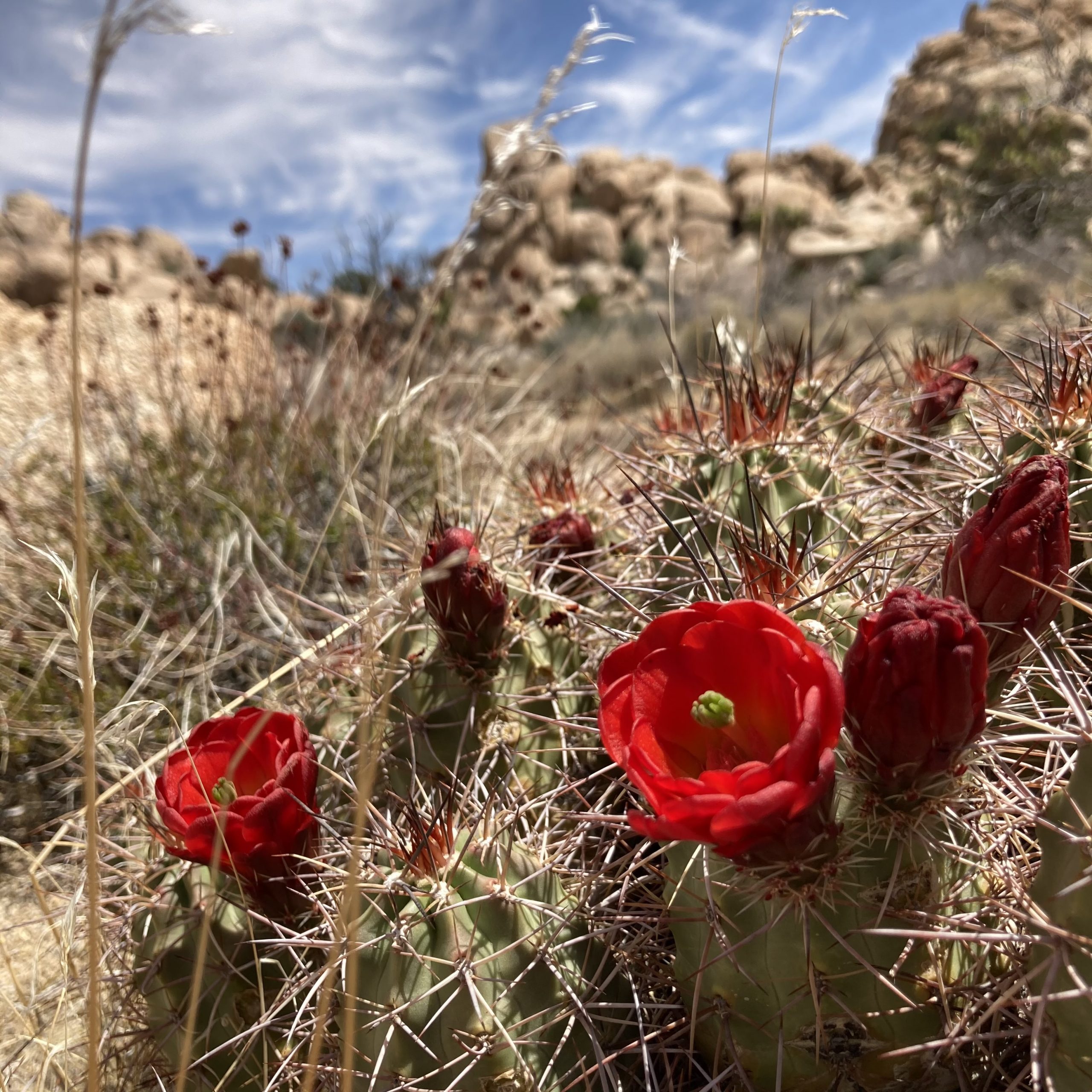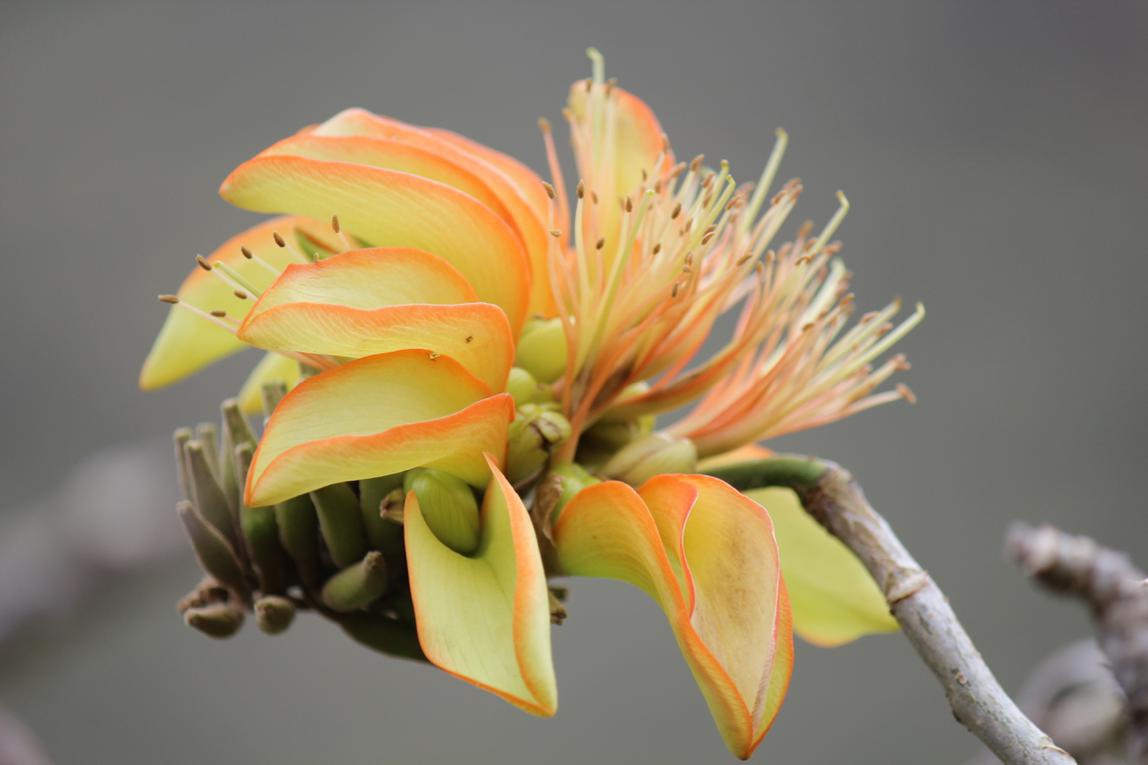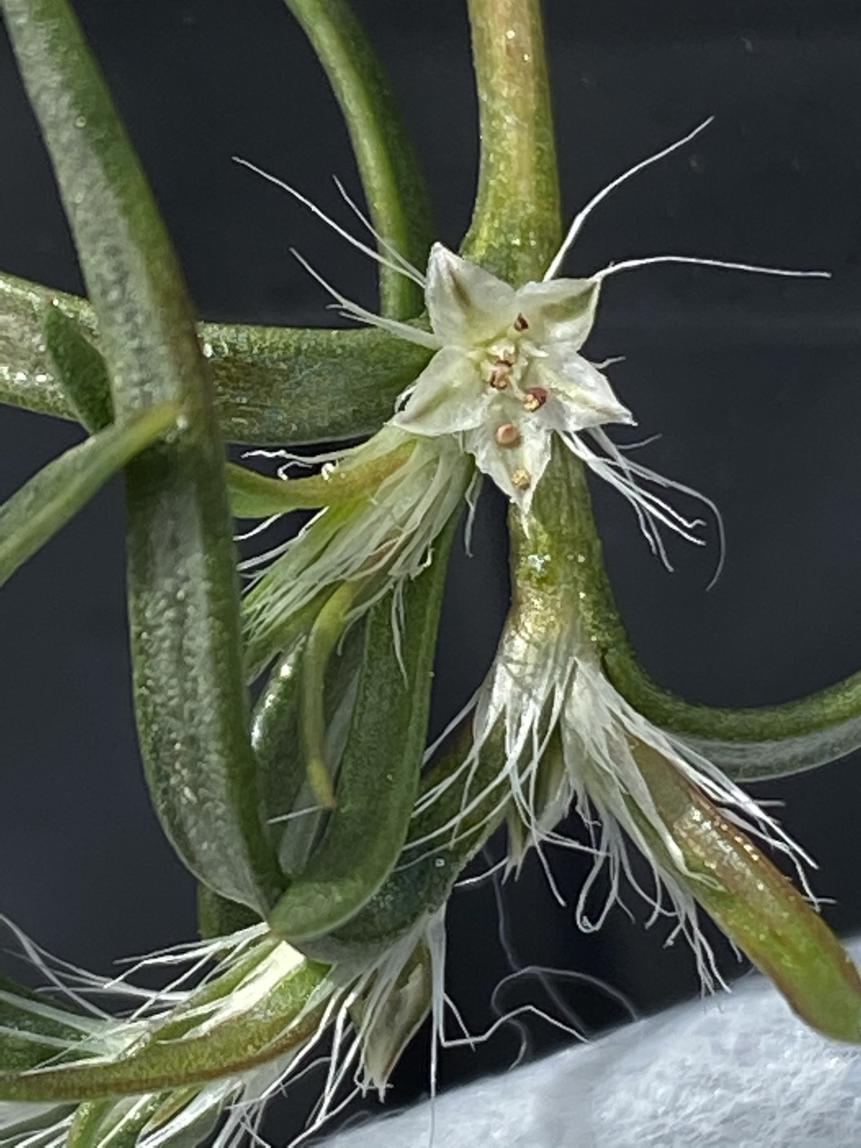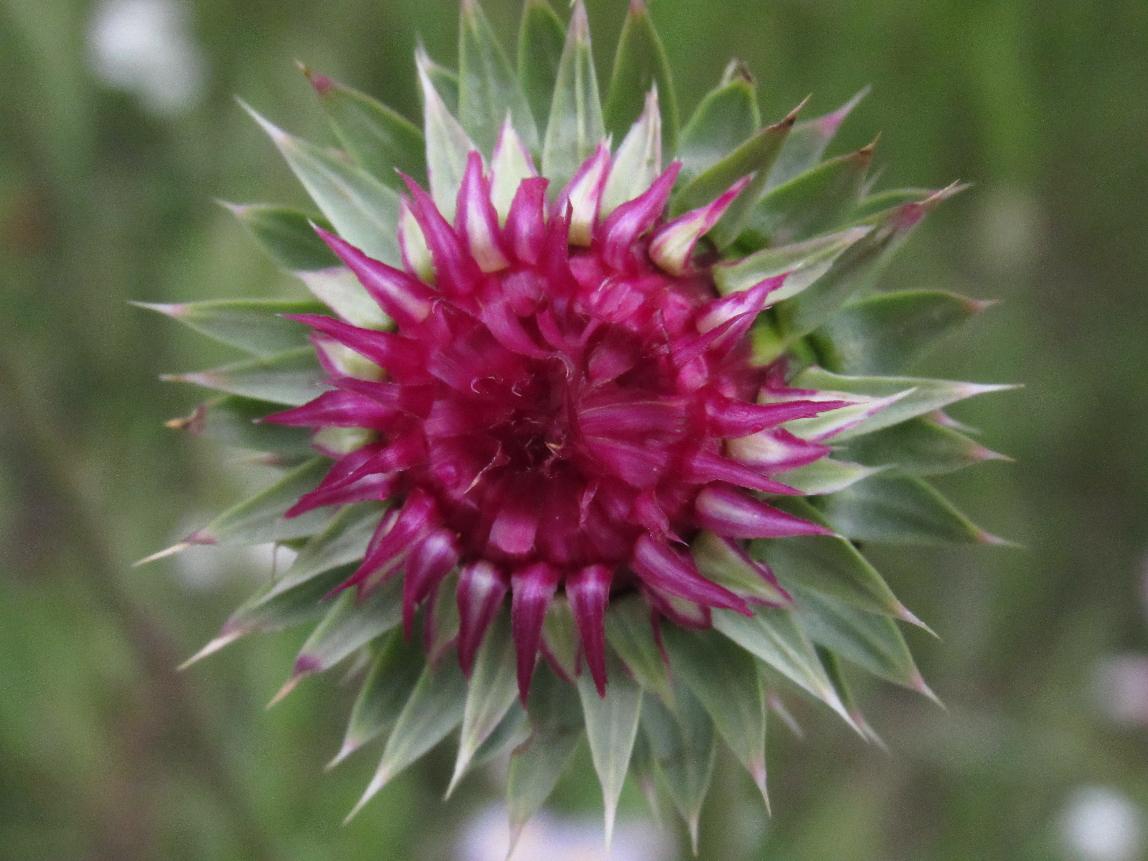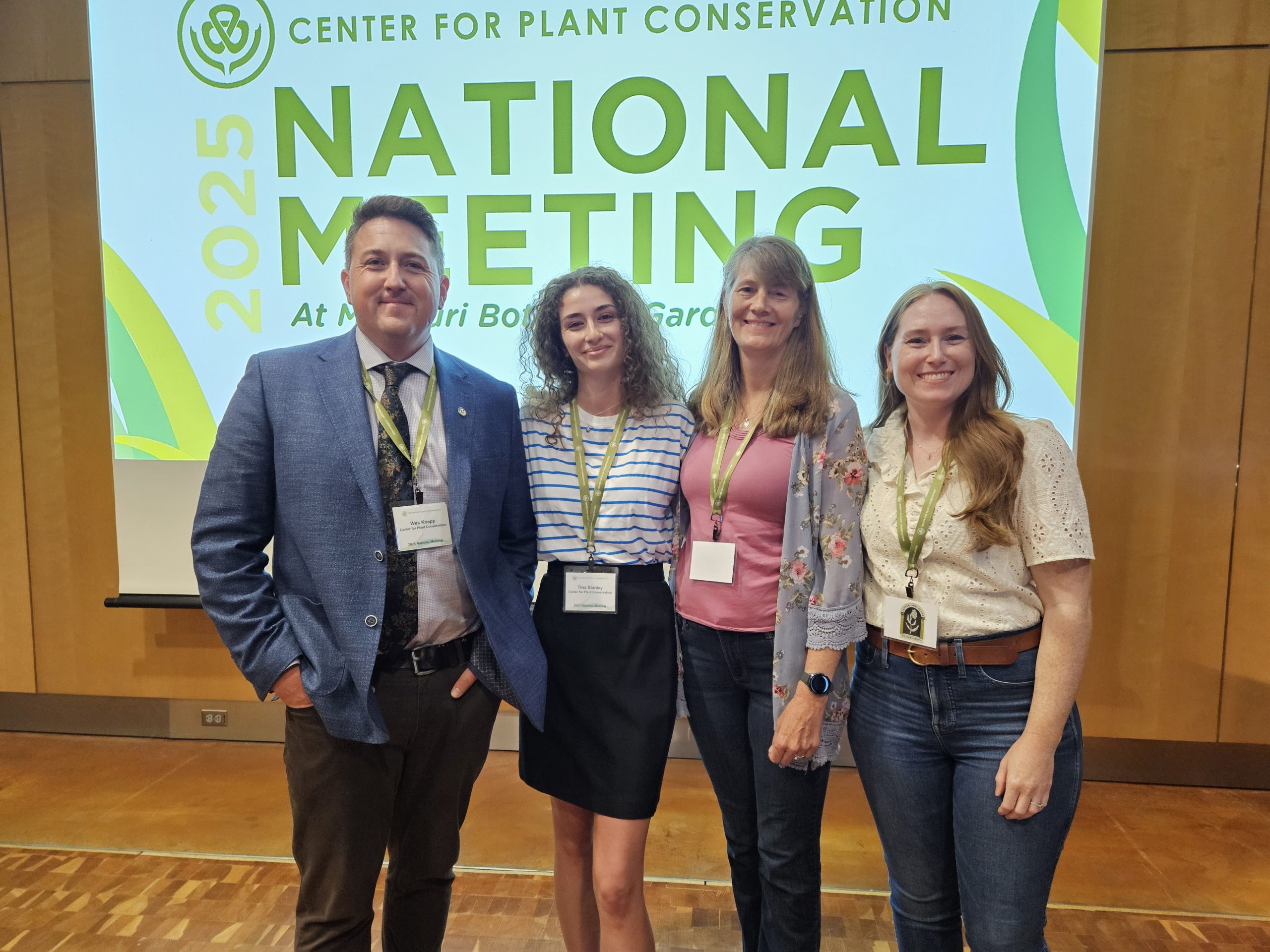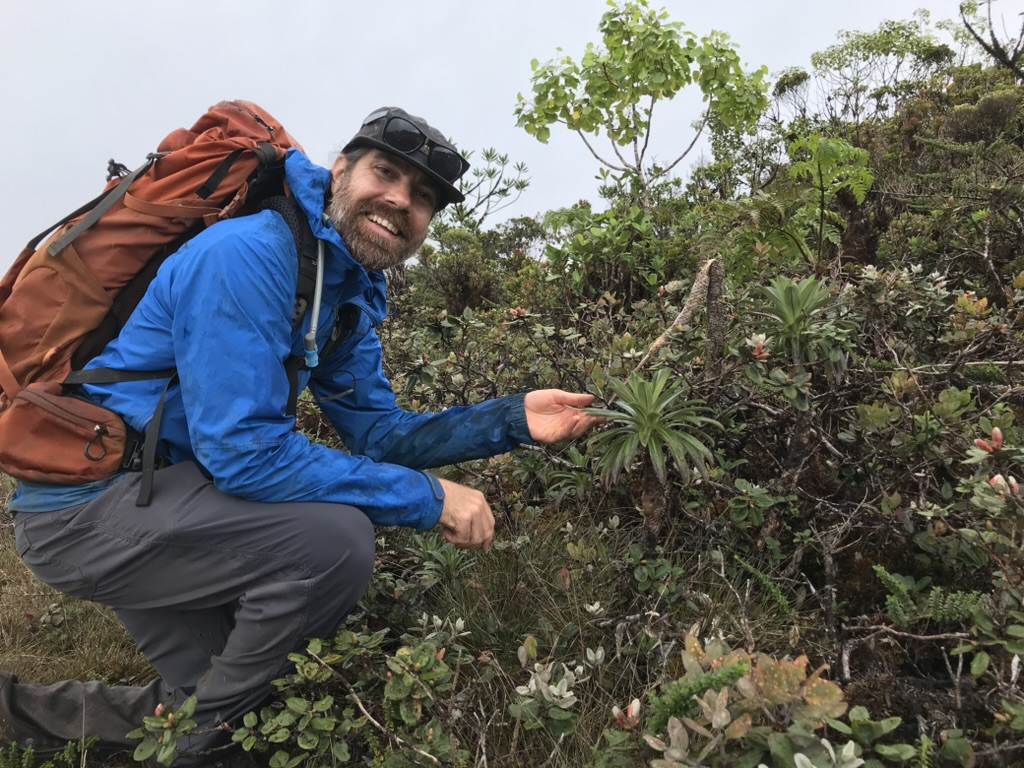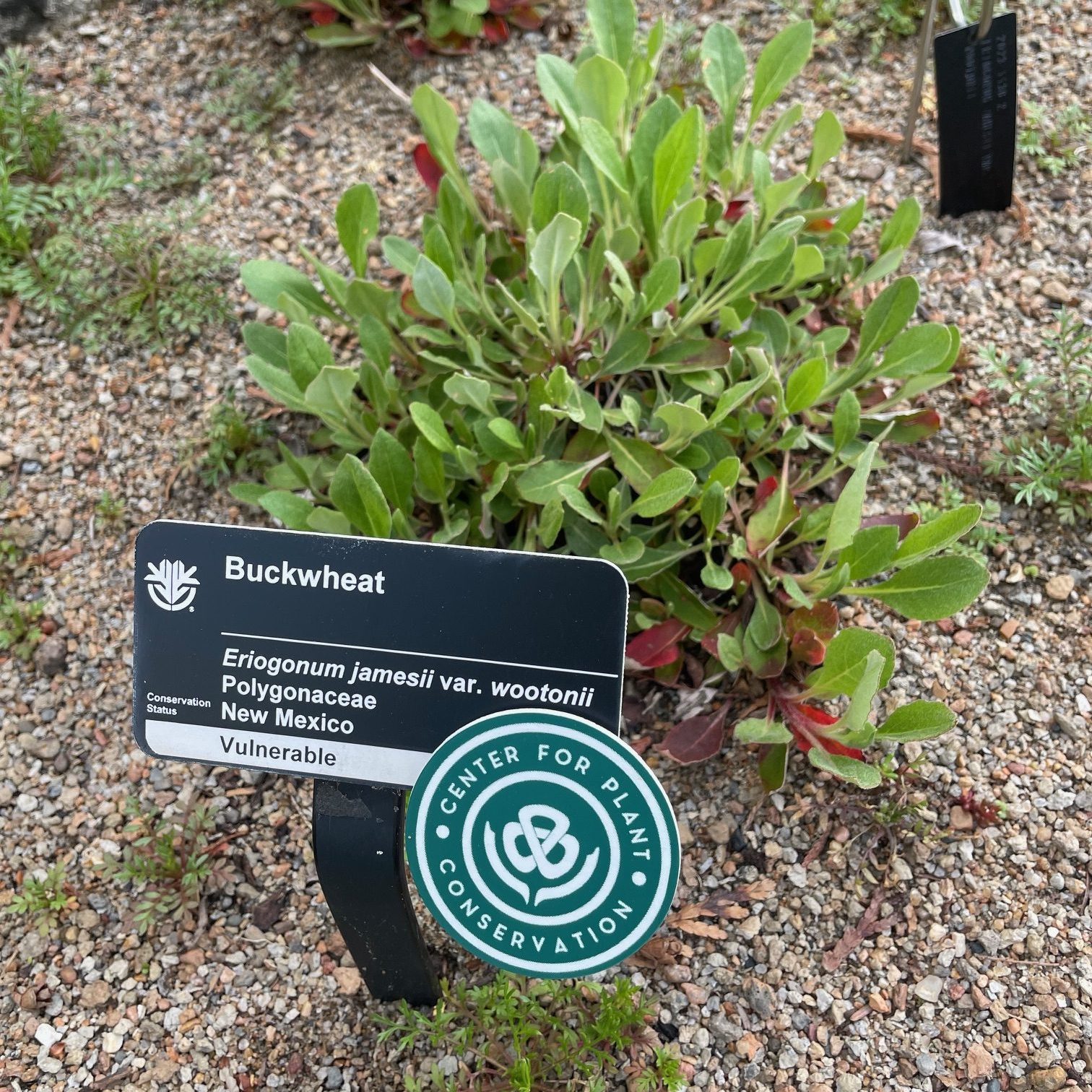Save Plants
Center for Plant Conservation
May 2021 Newsletter
Even when the CPC network meets virtually, there is great comradery and enthusiasm for our collective devotion to plant conservation. We draw inspiration from one another, gather new ideas for collaborative opportunities, and plot new ways to maximize our efforts to Save Plants. We thank those who gave presentations, participated in panels, small group sessions, and beta-testing, and contributed photos to the photo contest. As usual, it was a stellar event! In this issue, we showcase highlights of the conference and celebrate our Star Award winner Dr. Naomi Fraga. If the creek doesn’t rise, we look forward to the chance to see one another in person in 2022.
We wish you and your families continued good health and safety,

Joyce Maschinski
CPC President & CEOState of CPC - National Meeting Update
Dr. Joyce Maschinski, CPC President & CEO, opened this year’s meeting with exciting updates from the CPC national office and highlighted progress on national conservation efforts to save rare plants across our network of Participating Institutions (PIs). We are very happy to welcome two new staff members to the national office – Kelly Carlin, Administrative Assistant, and Shannon Fowler, Program Manager – and two new PIs to the CPC network – Zoo New England and Memorial University of Newfoundland Botanic Garden, CPC’s first Canadian Participating Institution.
In addition to its growing team and network, CPC has several major conservation projects and advocacy efforts underway, including:
- Collaborating with PIs on the development of an Applied Plant Conservation online course. To date 40 hours of content on topics such as rarity, spatial modeling, genetics, and reintroduction are underway.
- Advancing the RIN Seed Longevity Study, in partnership with the National Laboratory for Genetic Resource Preservation, to discover new insights into seed storage behavior.
- Expanding content in the Rare Plant Academy – a key resource for connecting today’s conservationists and training tomorrow’s professionals–through contributions made by network scientists and institutions.
- Utilizing funding from the Institute for Museum and Library Services to create a compelling new videos that demonstrate the critical importance of saving rare and endangered plants.
- Advocating with legislators and garnering public support, which led to the passing of the Great American Outdoors Act.
Despite the adversity caused by the COVID-19 pandemic, it has been a year of great progress and achievement in the fight to save rare and endangered plant species. The National Meeting served as a welcome opportunity for the CPC network to reconnect, celebrate accomplishments, and look ahead to conservation initiatives that are on the horizon.
-
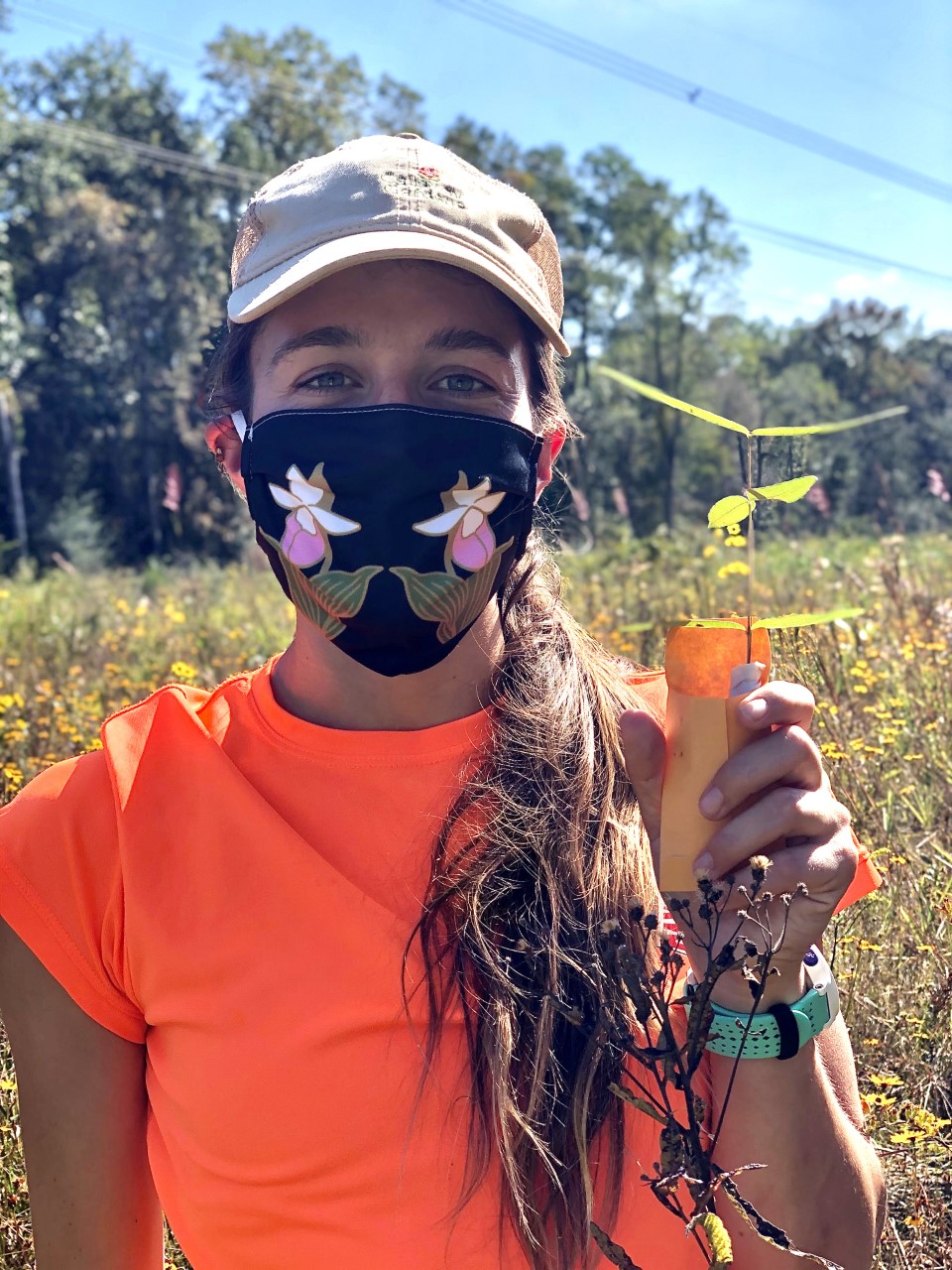
Emma Neigel in the field collecting a cutting of red milkweed (Asclepias rubra) as part of an effort to maintain a safeguarding ex situ collection at Atlanta Botanical Garden. Photo by Lila Uzzell. -
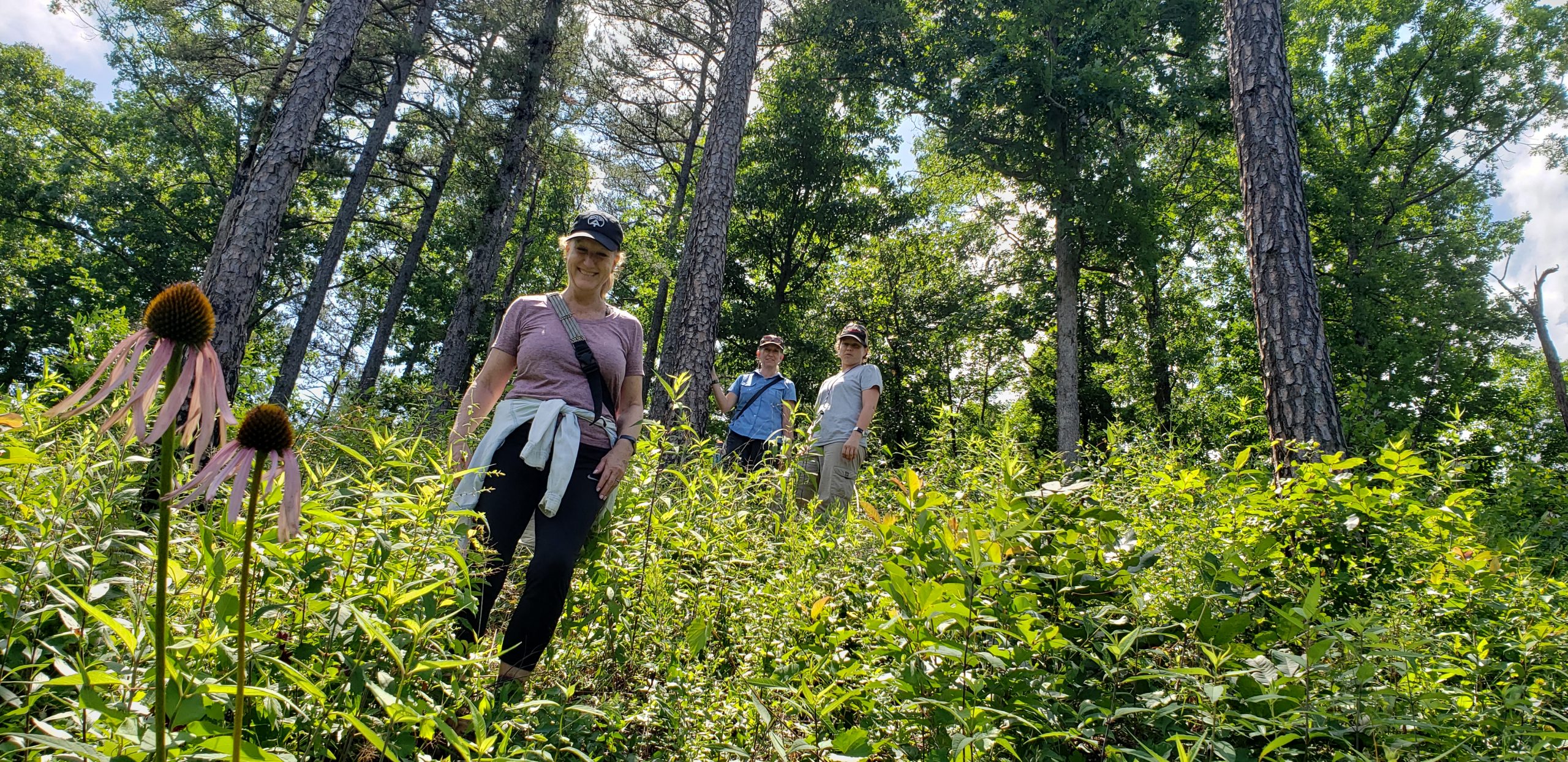
The Alley Plot – Safeguarding Off Roadsides. Sharing the story of the recovery of Smooth Coneflower in Georgia – GPCA. Photo by Jennifer Ceska. -
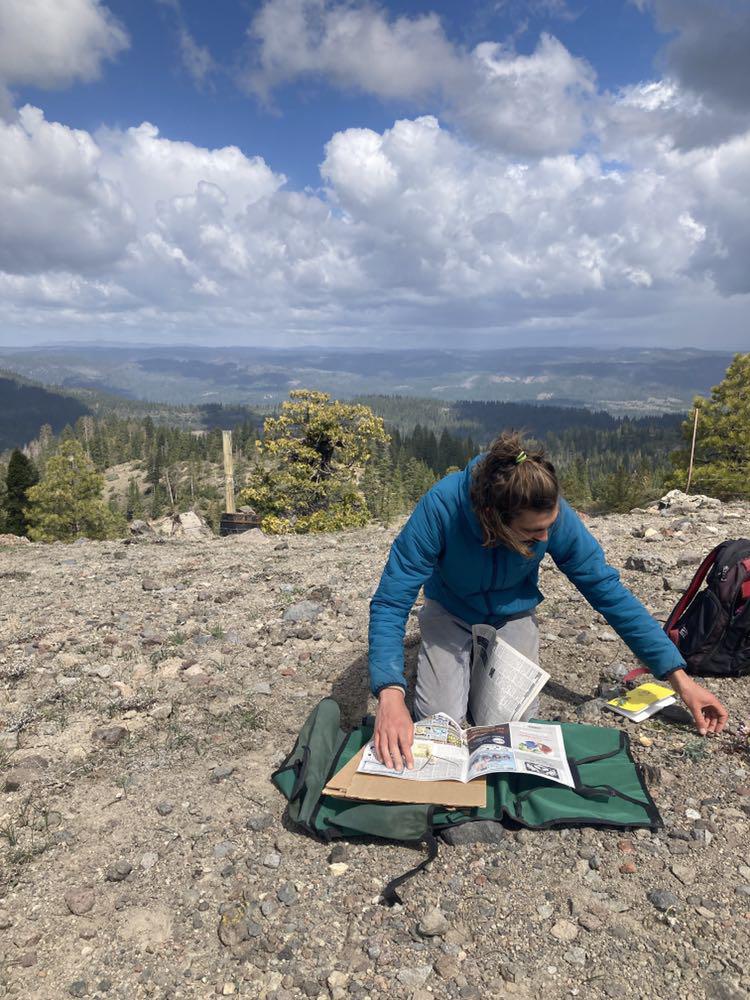
Kevin vouchers Allium tribracteatum and Lomatium stebbinsii - with Kevin Mason. Photo by Sean Carson.
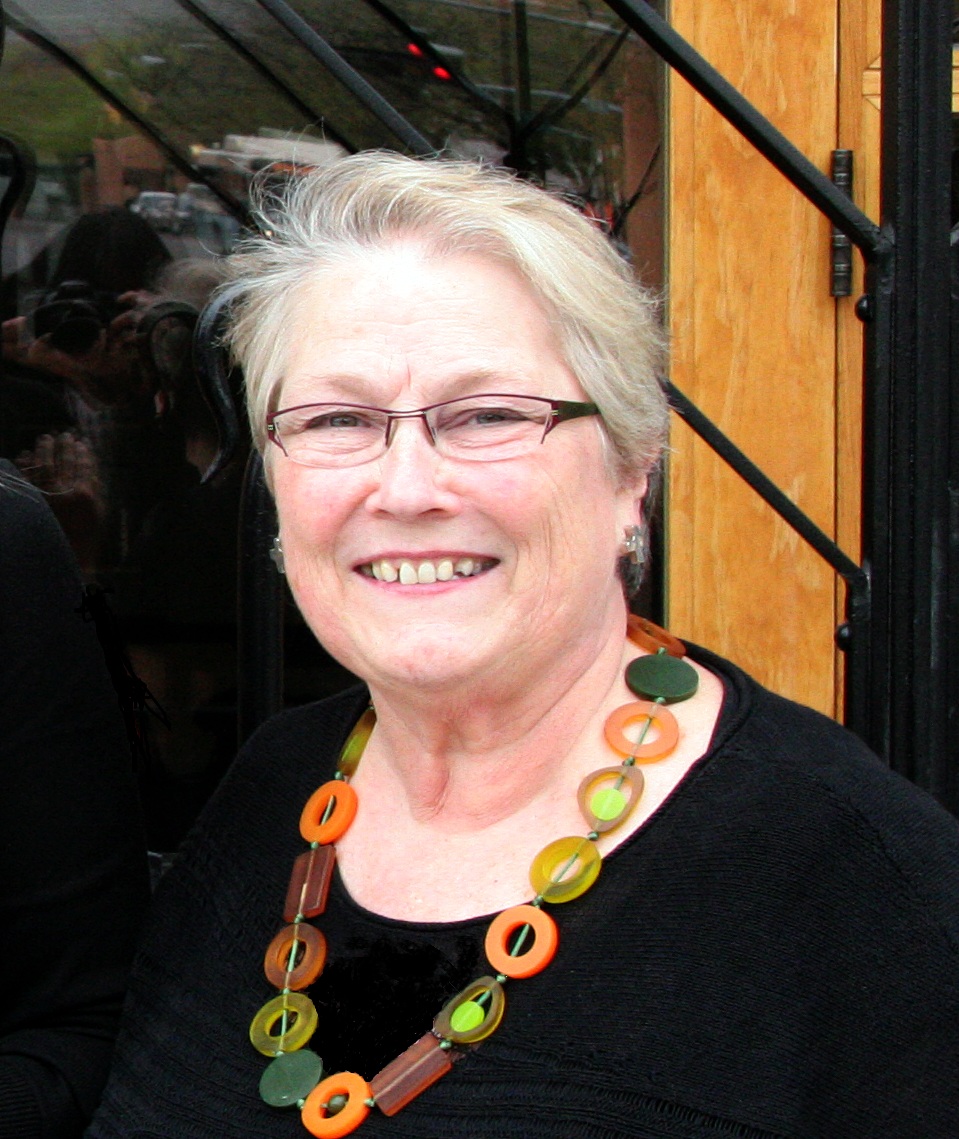
Keynote Address
Optimism for a future where plant conservation receives support permeated Peggy Olwell’s keynote address, “Moment of Crisis, Moment of Possibility.” The accomplished Bureau of Land Management (BLM) Plant Conservation Program Manager delved into the opportunities for plant conservation presented by the new U.S. federal administration’s drive to address the challenges of climate change.
A stalwart supporter of the Native Plant Materials Program for decades, Peggy has recently seen the program gain increasing monetary support and drive towards real progress. In President Biden’s Executive Order 14008, “Tackling the Climate Crisis at Home and Abroad,” Peggy sees opportunity to further advance this program and others supporting native plants. The executive order includes numerous sections calling for increasing climate resiliency through the conservation and restoration of public lands.
She encouraged the National Meeting attendees to seek these opportunities as well, to secure the true green infrastructure our country needs for healthy, resilient and biodiverse ecosystems.
Climate Change Panel and Discussion Groups
There is no denying that climate change is a threat for many of the rare plants and ecosystems that CPC Participating Institutions work to save. The impacts of climate change are vast and varied – negatively affecting pollinators and ecological dynamics, contributing to devastating fires and storms, and more. To weather these challenges, plants need our voices as well as our work. CPC’s Advocacy committee is drafting a position paper to outline CPC actions to guide policy and funding opportunities in the realm of policy makers and budget approvers.
To this end, CPC brought together three panelists to speak on their experiences in advocating for programs, budgets, and policies:
- BLM program manager Peggy Olwell, our Keynote Speaker, shared how she thinks outside of the box to draw connections between stated funding priorities and conservation and restoration program needs within the BLM. For example, she emphasizes the job creation that will result from expansion of the native plant materials program.
- From the Chicago Botanic Garden, Kay Havens, Ph.D., emphasized the moment of opportunity expressed in Peggy’s keynote address and shared her experience and optimism for the Botany Bill. Stating that good science alone is insufficient to save the species we care about, Kay pointed out the many ways we can engage decision makers: meeting with legislative representatives to promote legislation or discuss concerns, meeting with heads of agencies, seeking appropriations, and more.
- Experienced political advocate David Wilmot of Ocean Champions made some key observations from his work with legislators. Building on Kay’s point of interacting in the policy realm in a variety of ways, he focused on the power of ear-marked funding – which at times can be more successful than large-scale policy changes to achieve change. David encouraged attendees to think broadly and creatively to make connections that link legislators’ priorities to plant conservation.
Following the panel discussion, attendees moved to several breakout rooms to discuss three questions pertaining to climate change, applying the insights shared by the panelists. CPC staff and board members will compile the discussion notes and use them to help guide their position paper and future advocacy work.
-
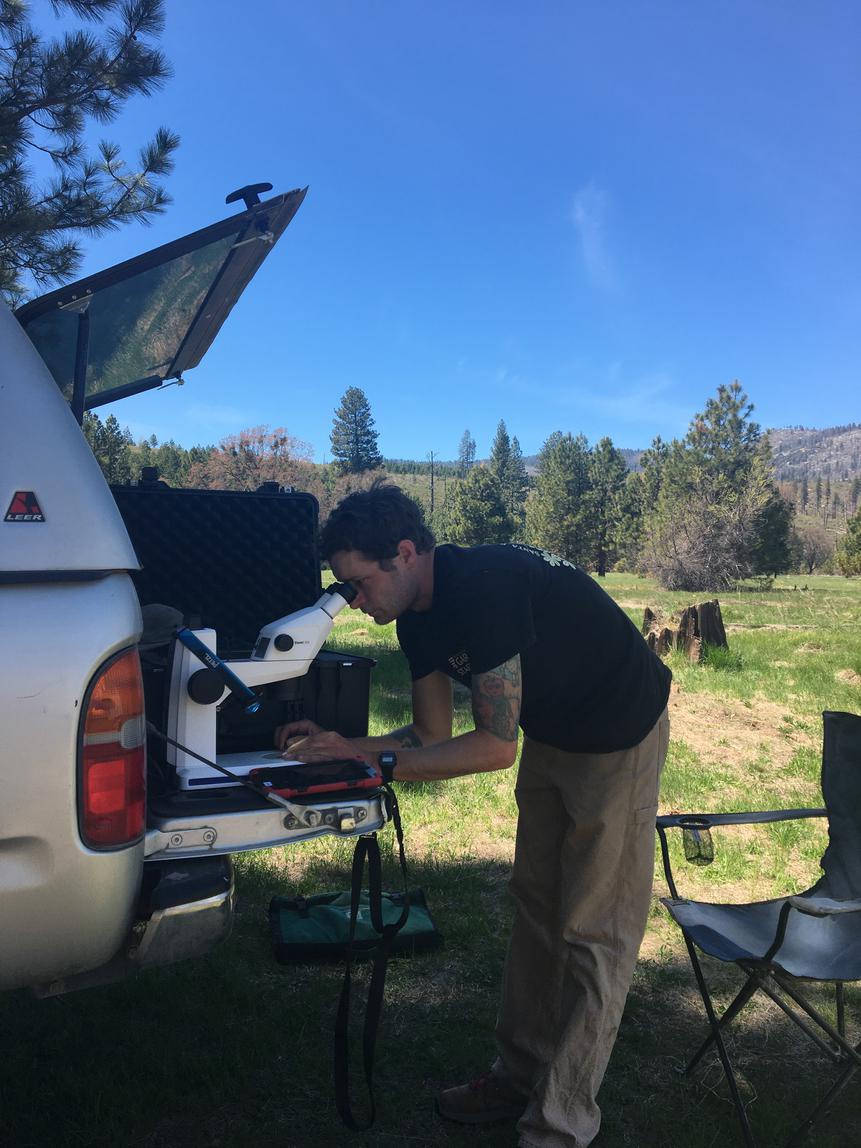
Sean Carson in the field in action, looking at a Plagiobothrys sp. on the scope on the tailgate of a toyota, using pine needles to dissect plant. Photo by Kevin Mason. -
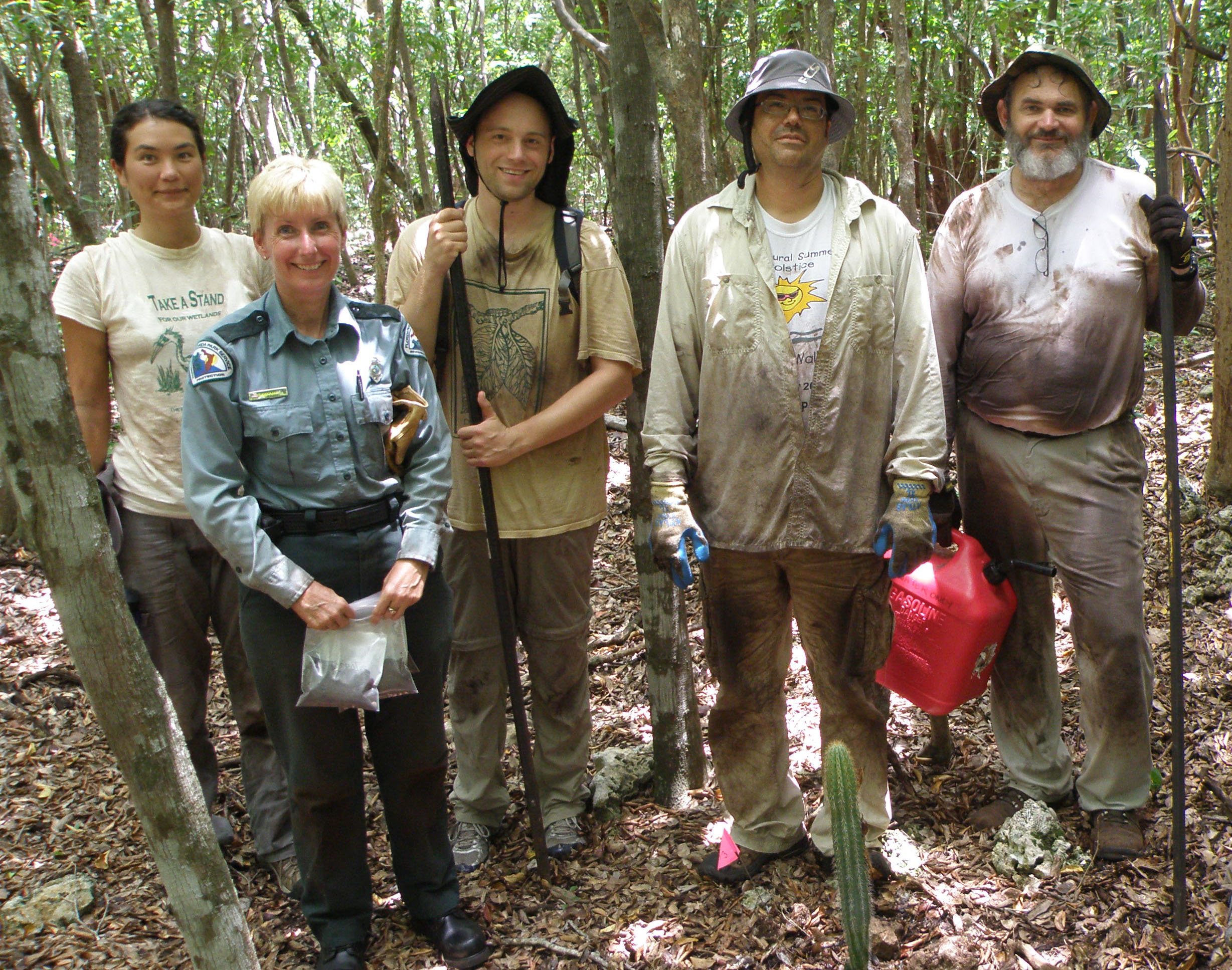
Reintroduction is dirty work! Key tree cactus Reintroduction team. Photo by Joyce Maschinski. -

Amaranthus pumilus (Seabeach Amaranth) planting with NC Botanical Garden and National Park Service. Photo by Johnny Randall.
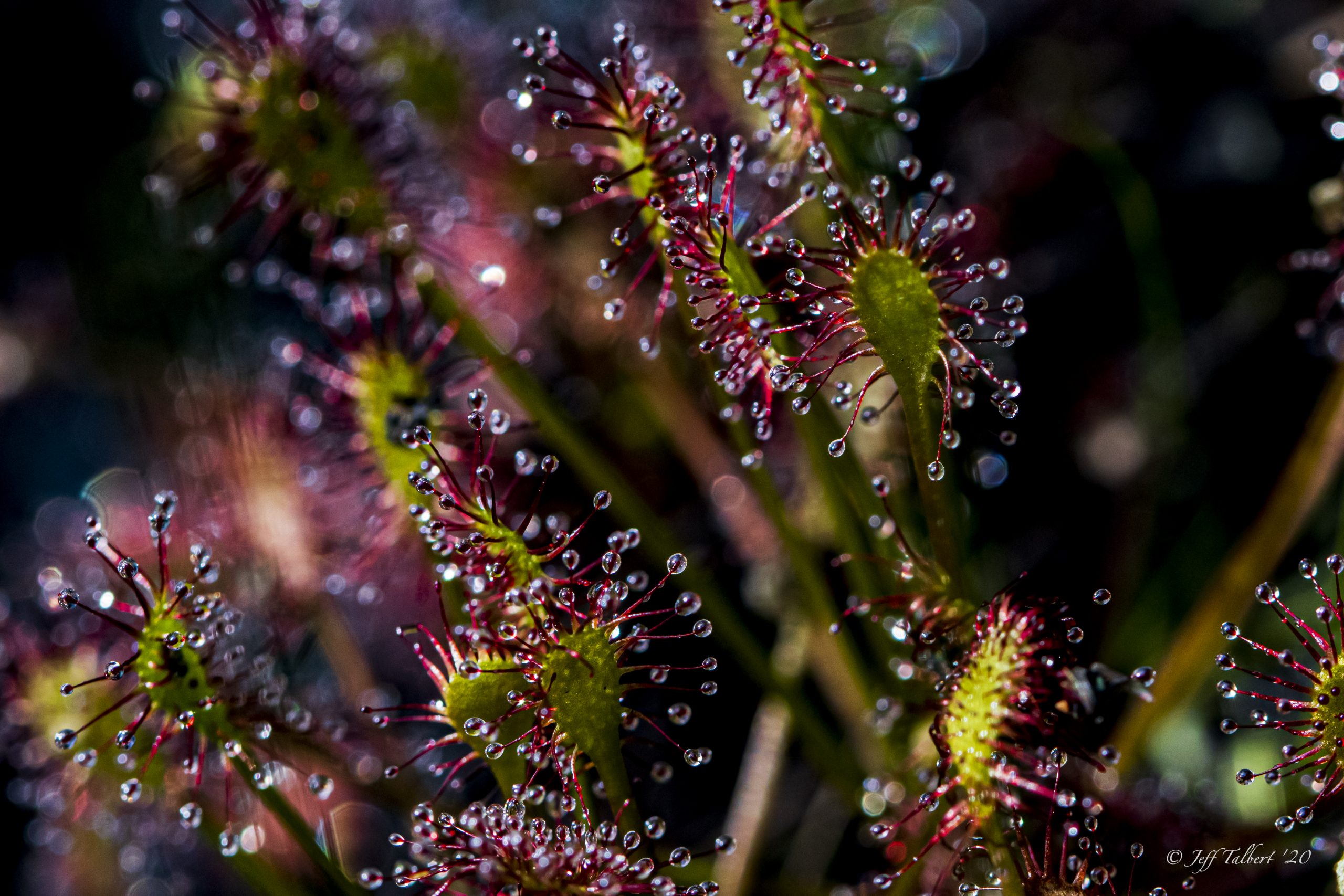
Photo Contest
The 2nd Annual Photo Contest garnered amazing entries from across the country – featuring beautiful close-ups of the plants we work to save, teams hard at work, and the amazing landscapes plants live in. Taking the top prize this year, Jeff Talbert (Project Coordinator at Atlanta Botanical Garden) presented a striking close-up of the intriguing oblong-leaved sundew (Drosera intermedia). The two photos tying for second place featured the alpines: Emily Griffoul (Conservation Scientist at Betty Ford Alpine Gardens) capturing the alpines when smoke has altered the skies, and Alex Seglias (Seed Conservation Research Associate, Denver Botanic Gardens) showcasing Hoosier Pass ipomopsis (Ipomopsis globularis) against its mountain habitat.
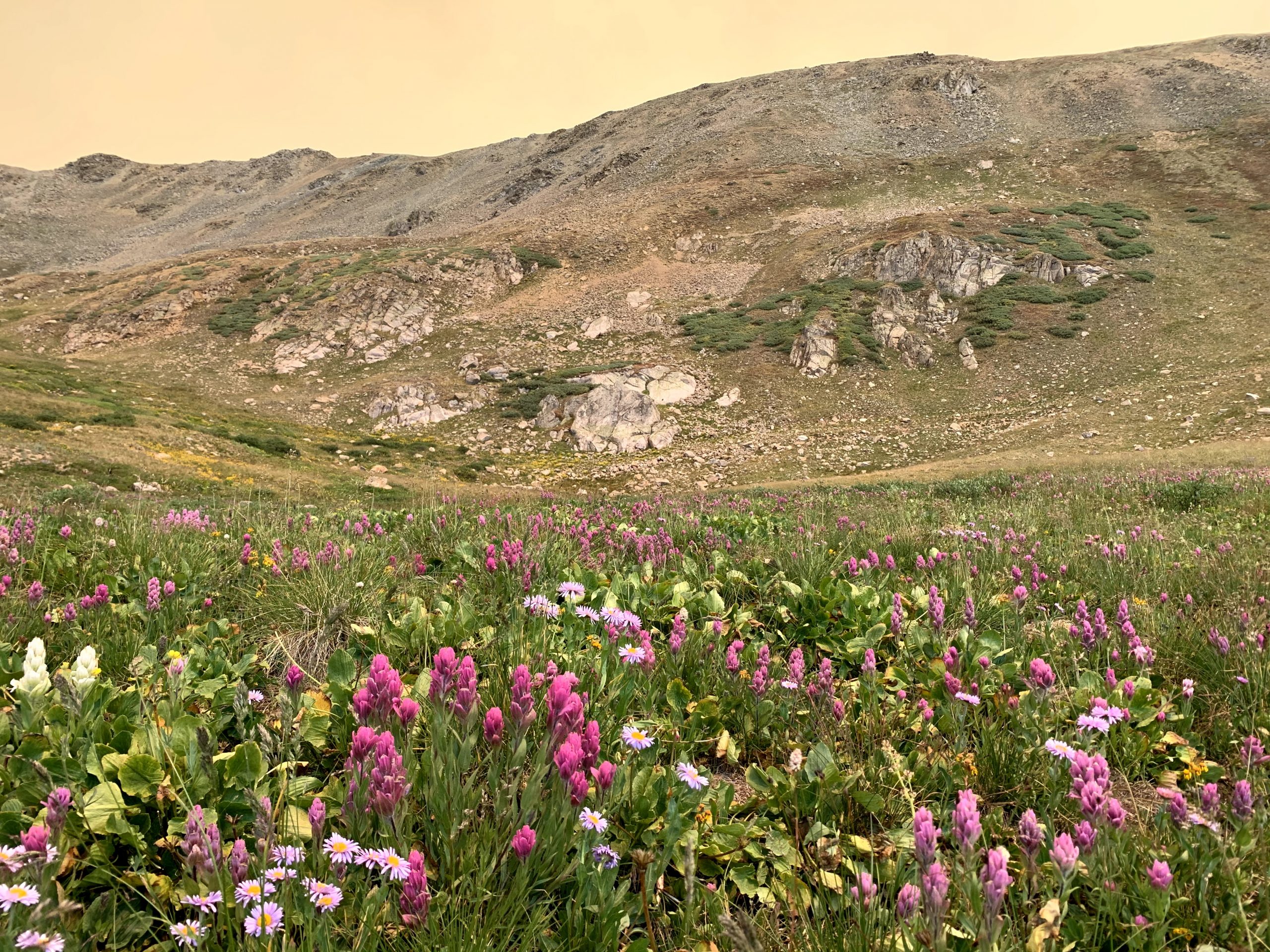
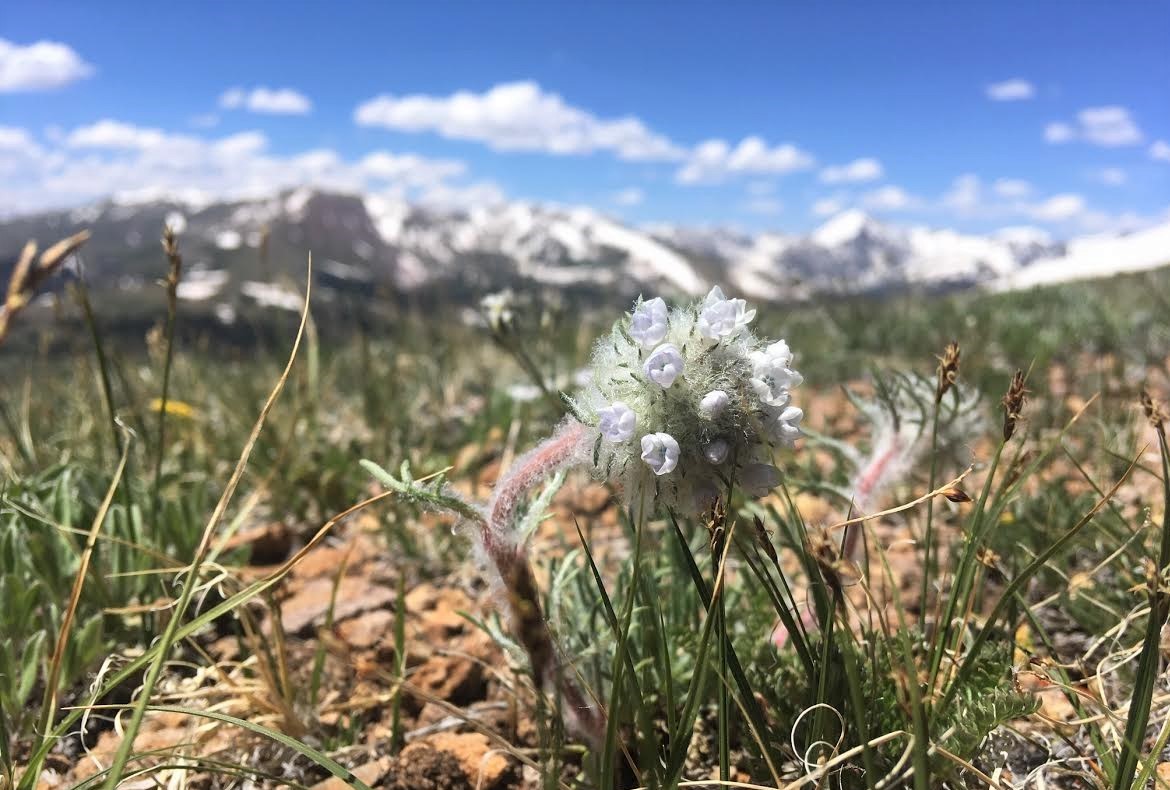
Conservation Champion: Naomi Fraga, Ph.D.
In recognition of her outstanding conservation and advocacy efforts on behalf of the rare plants of California, we are thrilled to award Dr. Naomi Fraga the 2021 CPC Star Award. The award honors an individual who demonstrates the concern, cooperation, and personal investment needed to conserve our imperiled native plants. Dr. Fraga’s commitment to the conservation of rare and endangered plants is a model to the CPC network and the conservationists of tomorrow, and an asset to the flora of the United States of America. Congratulations, Dr. Fraga!
Congratulations on being awarded the CPC Star Award! Are there any remarks you’d like to share in response to receiving this reward?
I am so deeply honored to receive this award! Working in the field of plant conservation is rewarding in itself, but it is also wonderful to be recognized for the painstaking work. It’s a dream to work for the California Botanic Garden where the institutional mission aligns with my passion of conserving plants of my home state. I am so incredibly thankful to have this opportunity to work in service of plants, and also to work with brilliant and talented botanists, horticulturalists, and restoration professionals.
What has it meant to you to be a member of the CPC network? How has CPC supported your work?
Being a part of the CPC network is incredibly enriching. It is a great opportunity to network with colleagues working on similar issues, but in different parts of the country. The CPC Officers area huge inspiration to me. I have learned so much from them and I am in awe of their dedication to plant conservation. Seeing what everyone is working on really lifts my spirits and keeps me moving each year I attend the [National Meeting]. They are not only the heart of plant conservation in the U.S., but they are also the boots on the ground making things happen. It’s the best network around!
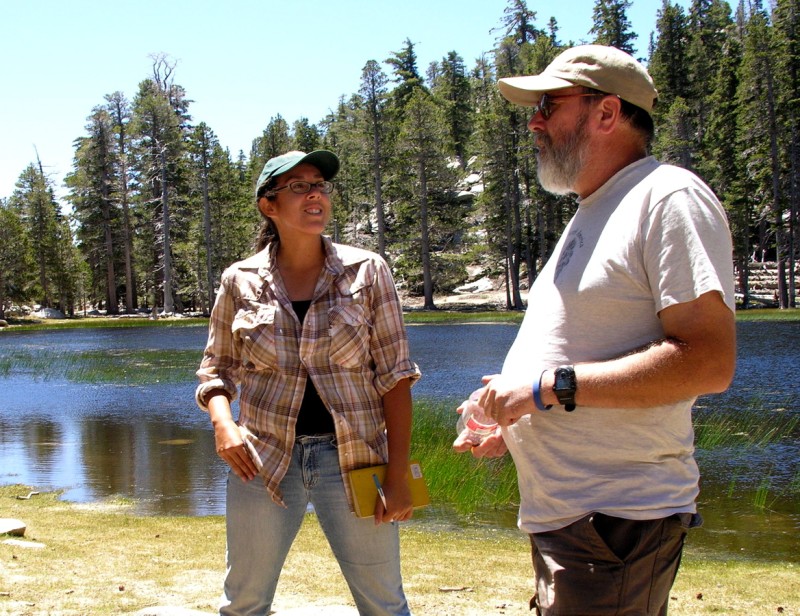
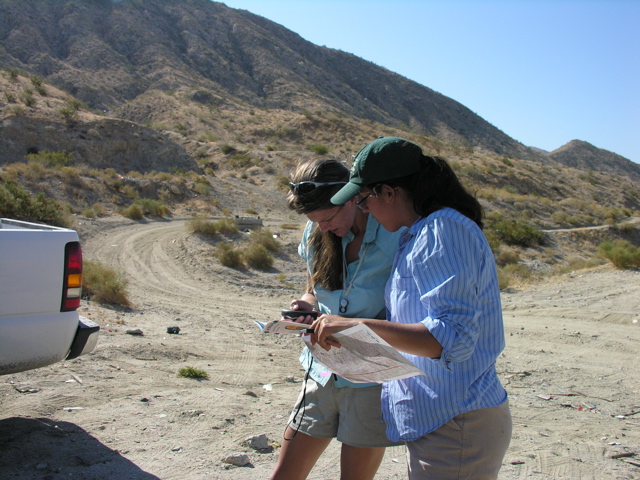
When did you first fall in love with plants?
This is a very hard question to answer. I don’t think there is a person on this planet who doesn’t love plants, but I think some might just not recognize it yet. Plants are a vital part of our everyday lives and I think we, as humans, are born with a natural affinity for them. So while I have always been in love with plants, my relationship has only deepened working with them day-to-day as a botanist, to the point where they are now one of the greatest loves of my life. If I could pinpoint the first time I recognized my love for plants, it would probably be when I was in high school and my parents allowed me to remove a patch of lawn to put in a diverse flower garden. I loved caring for those plants!
What was your career path to Director of Conservation Programs?
My career path very clearly blossomed the day I set foot on the grounds of the California Botanic Garden (CalBG). I was a biology major at a local university (Cal Poly Pomona), and I wanted to find a volunteer opportunity related to my major. I spoke to the herbarium curator and he asked if I like plants. I shrugged and thought, well sure, I like plants. On my first botanical field trip with CalBG I remember being quite decisive that I was going to commit myself to becoming a botanist. This required that I come up to speed in several areas because I had never hiked, camped, or identified plants before. It turns out I had a knack for plant identification! I went on to complete an M.S in Botany where I learned about getting around in the backcountry. I found myself working as a field botanist for a couple of years before returning to grad school for my PhD in Botany. After receiving my doctorate in Botany in 2015, I became the Director of Plant Conservation Programs at CalBG. It’s been one big, spectacular journey and 20 years of learning and growing at CalBG.
What advice do you have for newcomers to the field of plant conservation?
I think it’s important to realize that work in plant conservation finds its strength in the community. Working in diverse partnerships at many levels (regionally, nationally, and internationally) strengthens the work of any one individual. I have found that my most rewarding work has been as part of a team working towards a common mission, whether it be within my own institution or across institutions. Finding the spirit of community and working in partnership will help carry your work farther.
What is one of the biggest challenges to conducting your plant conservation work?
I feel one of the largest challenges in plant conservation is often having to make the case that plants are essential and their conservation is relevant to all communities on earth at multiple spatial scales–from unique microhabitats to diverse and thriving ecosystems that are inclusive of human communities. Plants are undervalued; ensuring their conservation priority with the limited resources currently available is by far the biggest challenge in my mind.
The CPC Star Award specifically recognizes your contributions to conserving theHidden Lake bluecurls–please share some highlights from that work.
Working on Hidden Lake bluecurls was a great conservation success because, it was a collaborative effort with my colleagues Ken Kietzer (California State Parks) and Jonathan Snapp-Cook (U.S. Fish and Wildlife Service). We had a shared commitment to advancing conservation of this species and we leveraged limited resources to build a comprehensive conservation program, that includes the highest level of habitat protection afforded by the state of California, seed banking, and monitoring.
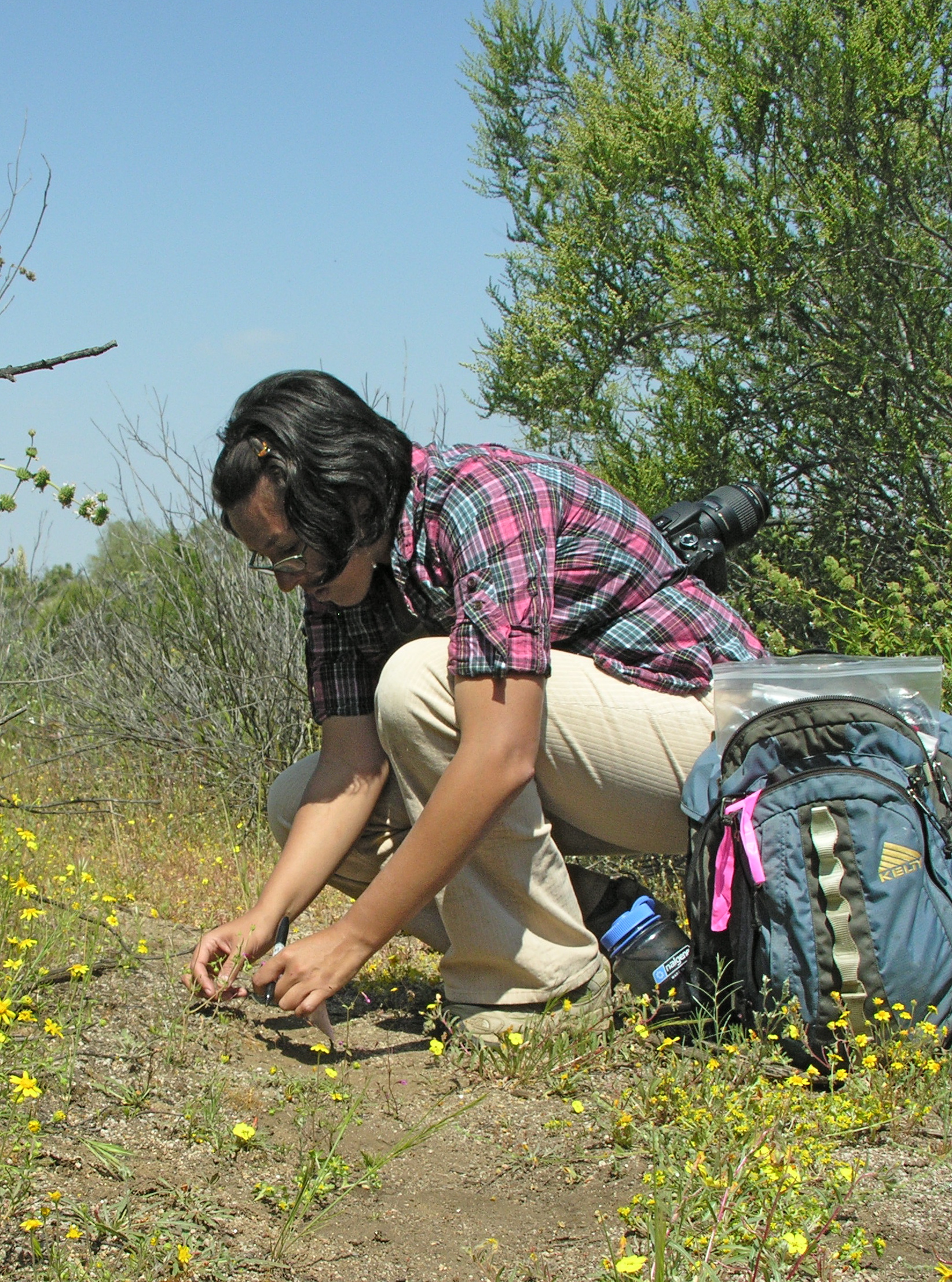
-
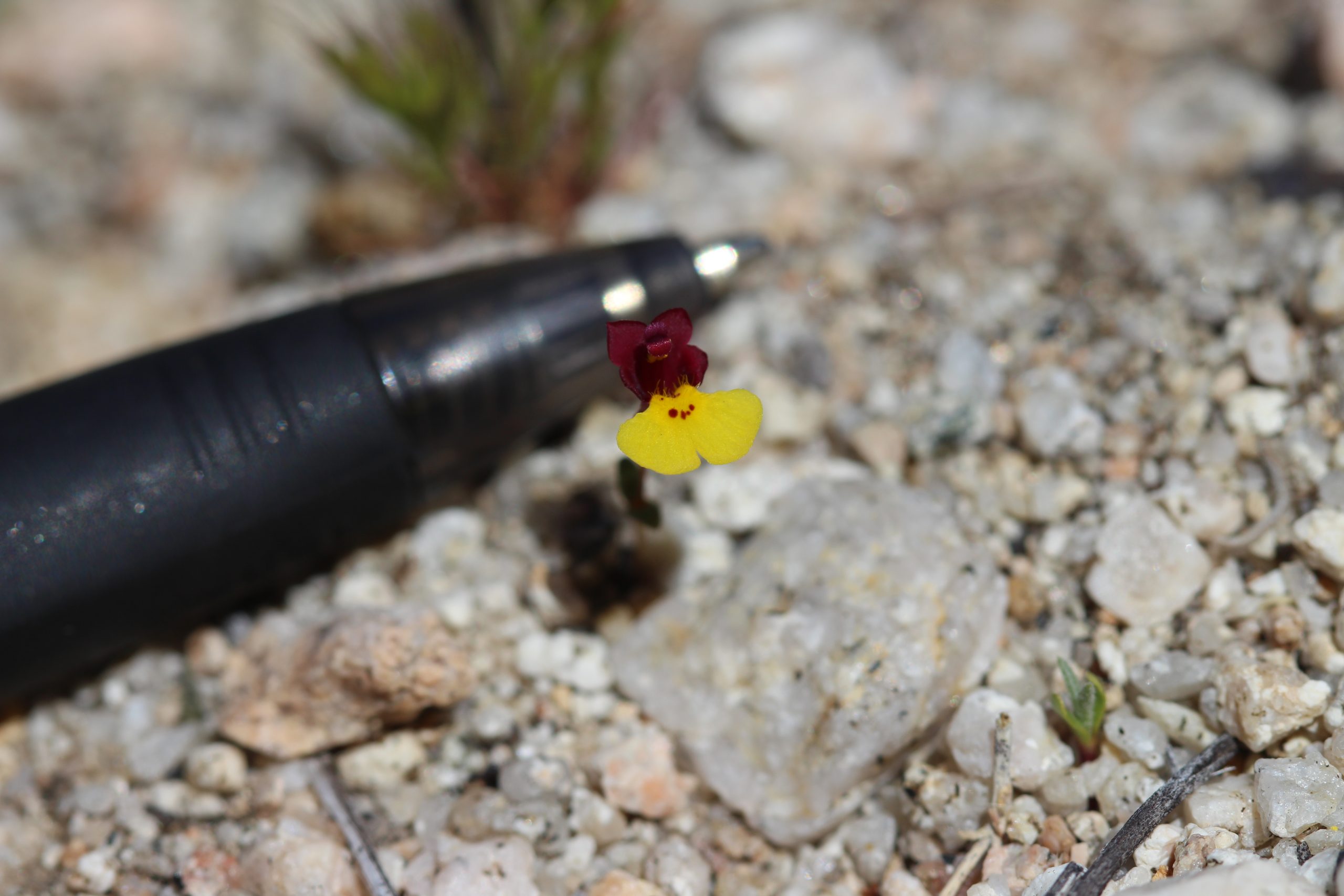
The inspiration for Naomi's dissertation work: the rare (and petite) Kelso Creek monkeyflower (Erythranthe shevockii). Photo by Naomi Fraga. -
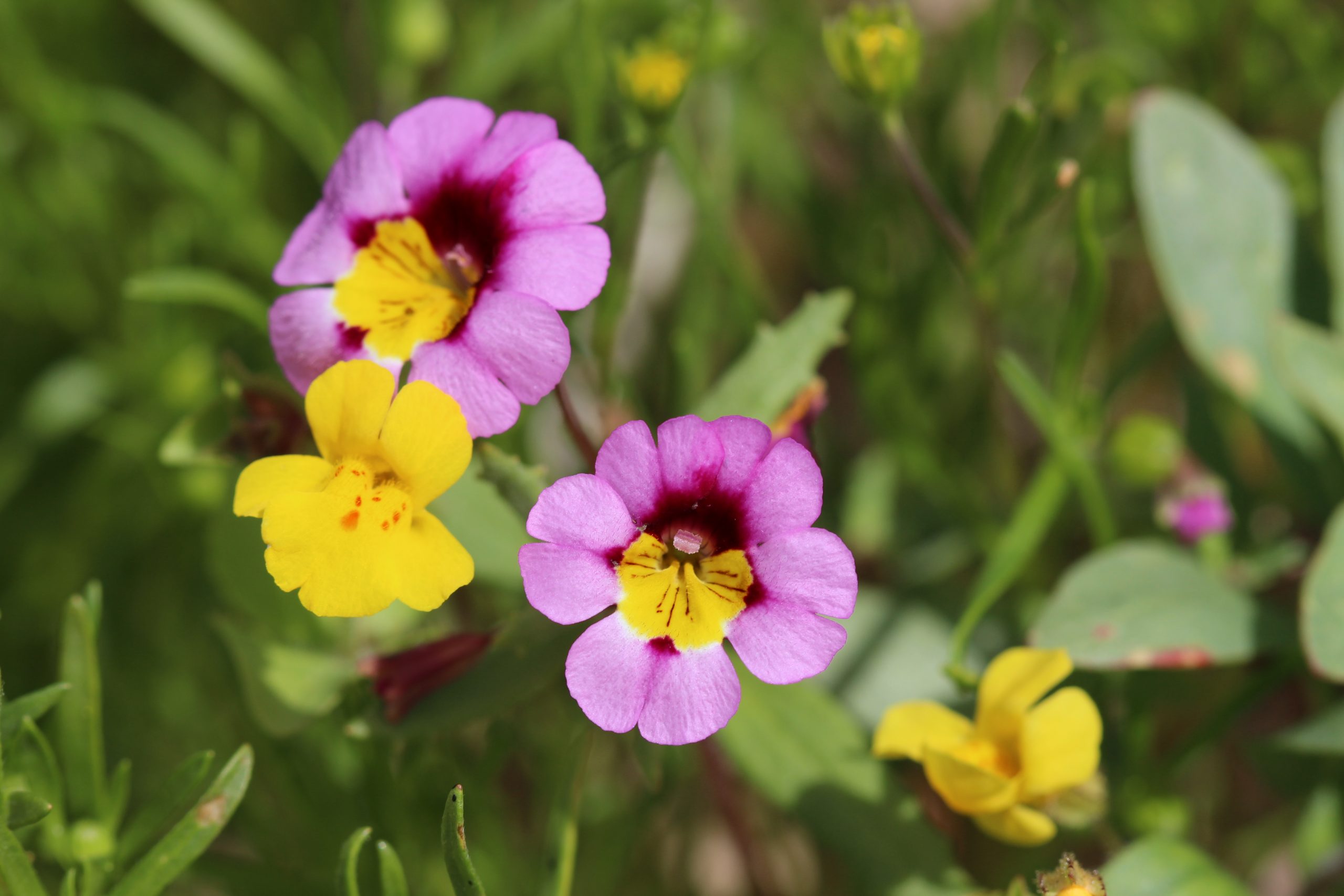
In Red Rock Canyon State Park, Red Rock Canyon monkey flower (Erythranthe rhodopetra) can be found with small-leaved monkey (E. microphylla). Photo by Naomi Fraga. -
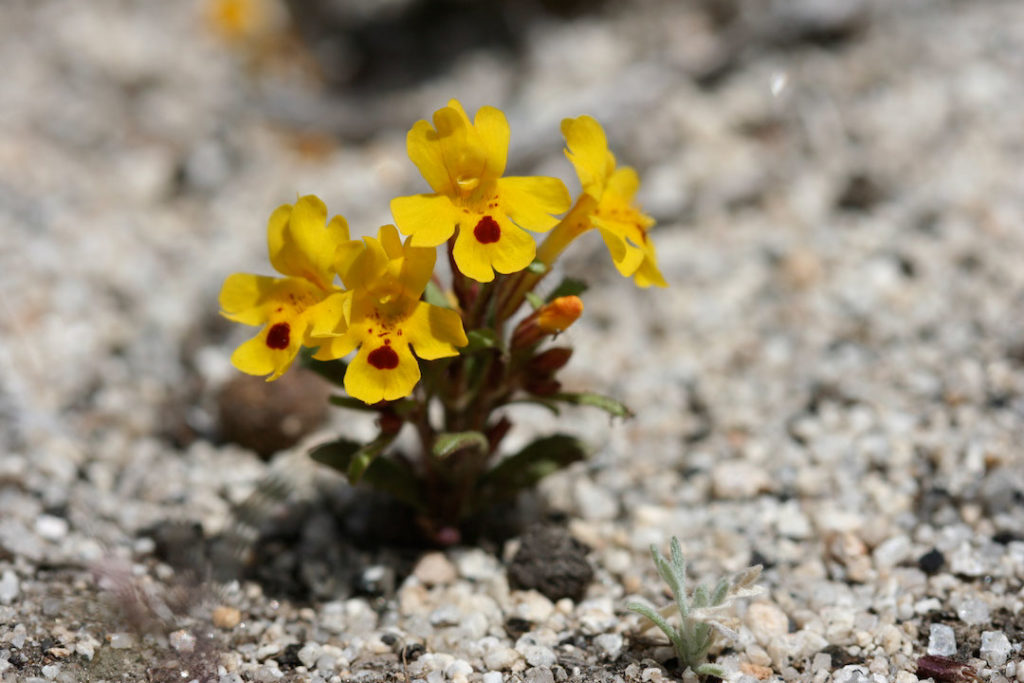
Image of Erythranthe carsonensis, photo by Naomi Fraga
Please tell me more about one of your current projects at California Botanic Garden.
For the past several years I have been dedicating a significant portion of my research time to studying the plants of the Amargosa River Basin in Inyo County, California, located in the northern Mojave Desert. This region is so special because, while it is one of the hottest and driest places on earth (Badwater Basin in Death Valley National Park is part of the watershed), it supports biological diversity through an extensive groundwater basin that surfaces at springs across the river basin. These springs create incredible wetland habitats that support numerous rare plants including the Amargosa niterwort and the Tecopa birdsbeak. I currently have funding from the USFWS and Bureau of Land Management to conduct rare plant studies and inventory the flora of the region.
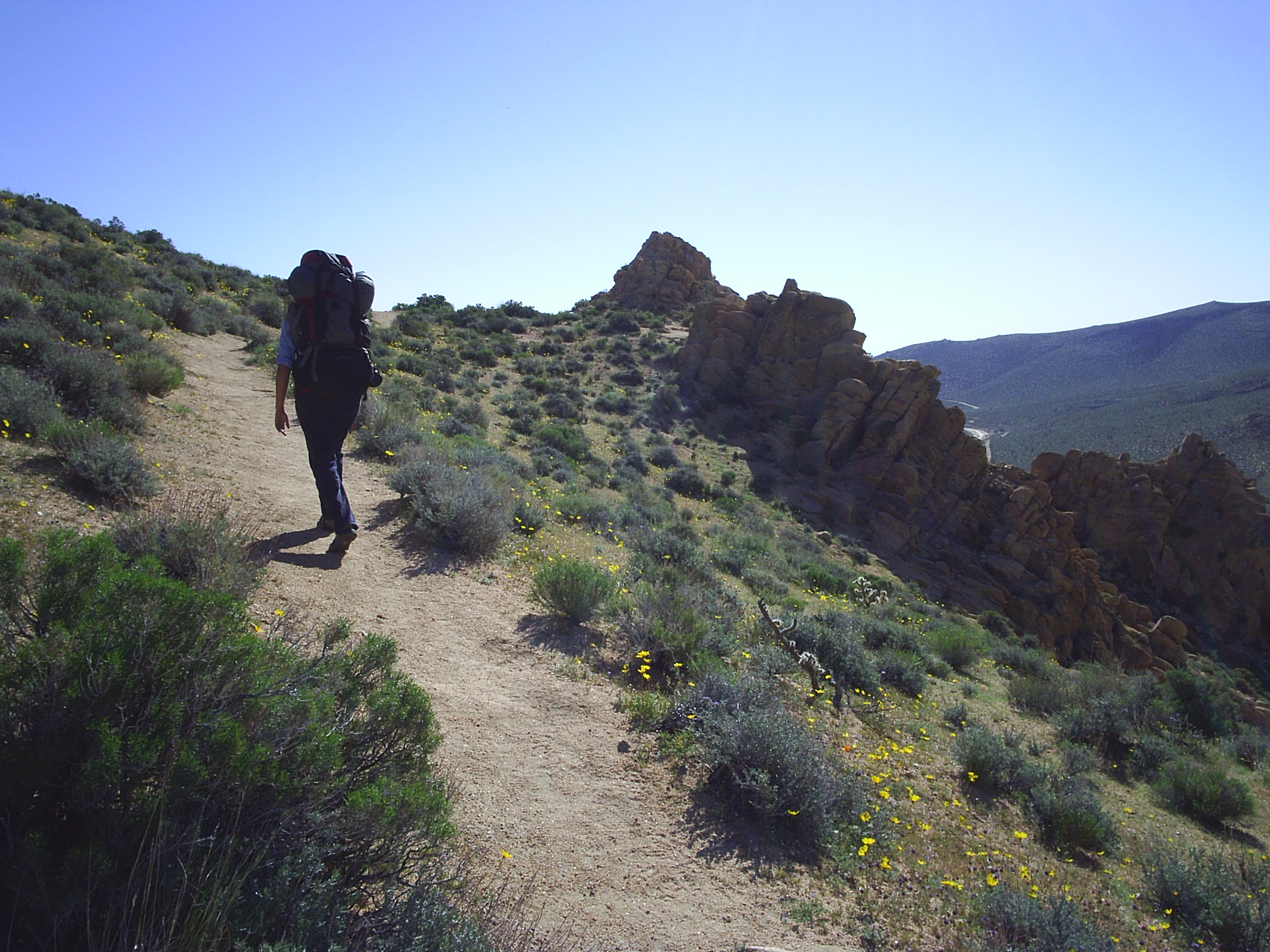
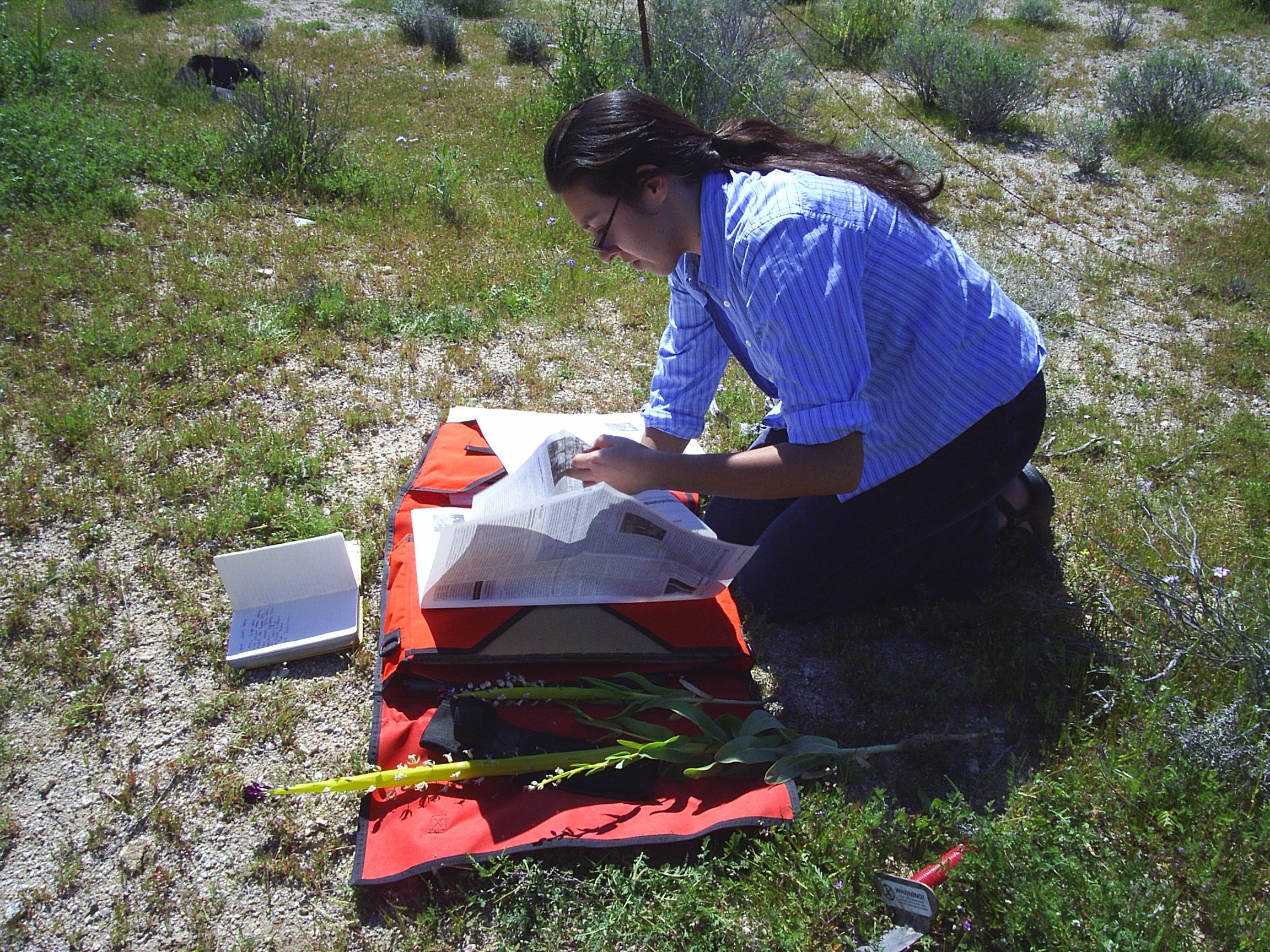
What emerging science (methods, approaches, discoveries) and/or trends in plant conservation excite you most?
I am really excited by new research to describe microbial communities such as the microbiome of soil or floral nectar. There is so much to learn about symbionts in plant communities. I am excited to learn more!
What advice would you give to the public who want to learn more about how they can help save imperiled plant species?
There are so many ways the public can support plant conservation, but I would like to mention two in particular that I think are very impactful. 1) Show up to the ballot box and vote for elected officials who support environment legislation including strong climate policy, public lands, and funding science. 2) Your monetary support of institutions like the Center for Plant Conservation and institutions in the CPC network goes a long way towards supporting plant conservation. Limited funding is a perennial problem and support of individual donors goes a long way to ensuring that this important work happens!
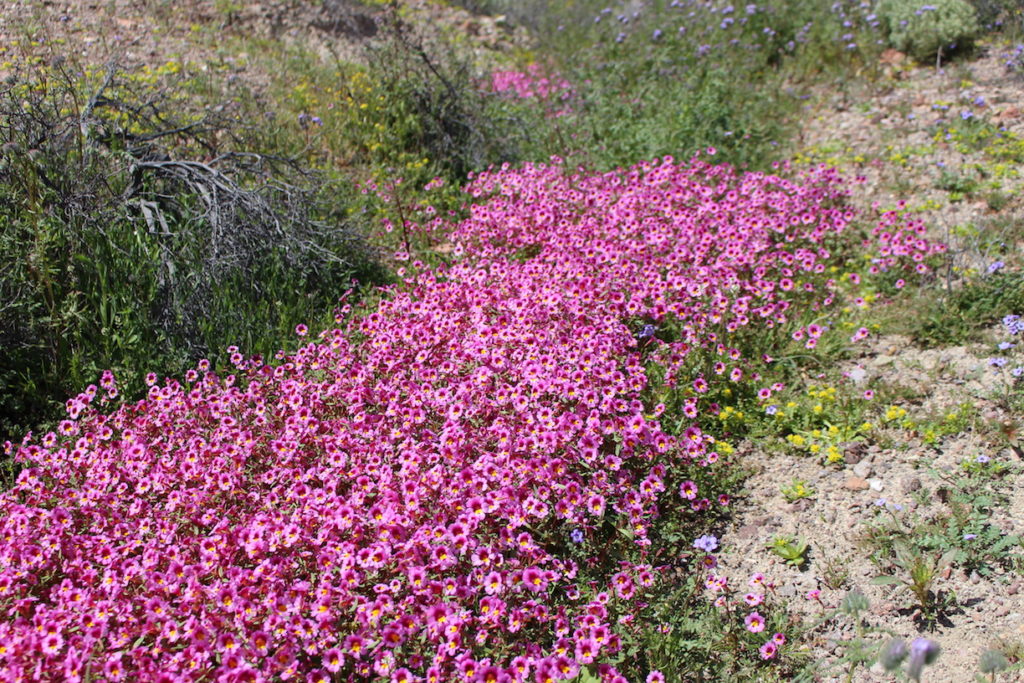
As Seen on Rare Plant Academy
It is beta-testing time! Does the idea of helping to build a better website for our plant conservation community excite you – or the prospect of winning a $25 Amazon gift card? If so, CPC is seeking your input to identify bugs and refine areas across our Rare Plant Academy and saveplants.org websites. Your comments will ensure that we make it as easy as possible for people to learn about plant conservation and share their experiences.
To give feedback, please follow the instructions and answer the questions in one of four survey forms:
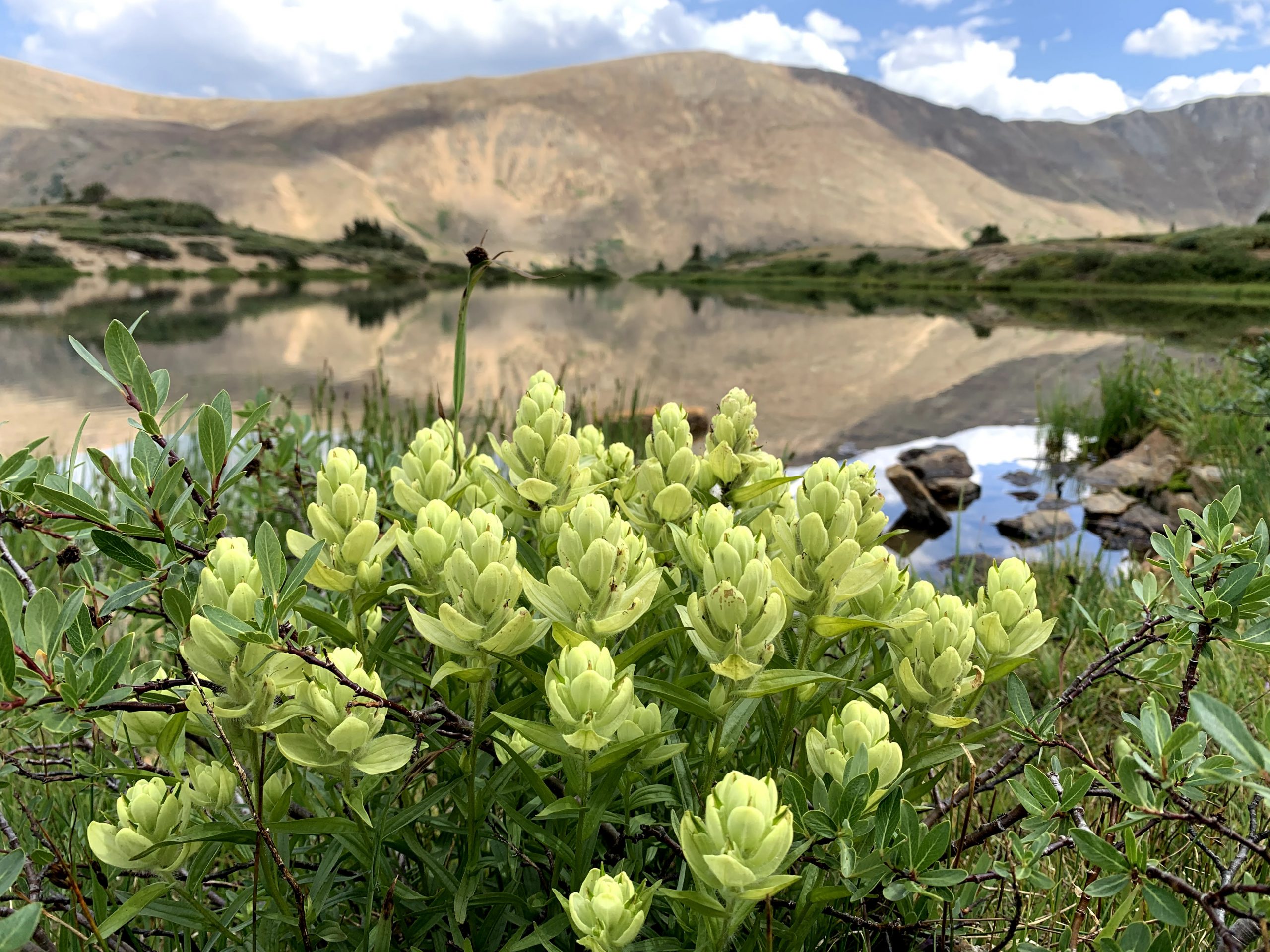
Get Updates
Get the latest news and conservation highlights from the CPC network by signing up for our newsletters.
Sign Up Today!Employment Opportunities
Under the direction of the Director of Cultural Resources Management (CRM), and as guided by the San Manuel Tribal Citizenry, the Ethnobotanist assists in the organization and execution of a comprehensive heritage stewardship program related to the preservation and use of plants considered culturally important to the San Manuel Tribal Community. The Ethnobotanist works closely with CRM staff and the Environmental, Construction/Development, and Public Works departments to support the Tribe’s efforts to create and maintain plant habitats on tribally owned lands for access and use by Tribal Citizens. The incumbent also leads CRM’s consultation efforts with various external government agencies and private organizations to protect plant habitats of cultural importance outside of tribally owned lands within Serrano ancestral territory, as well as establish agreements for access and use of these habitats by Tribal Citizens. Further, the Ethnobotanist supports the Tribal Community with various plant initiatives related to increasing food sovereignty and sufficiency, revitalizing and maintaining cultural practices related to plant gathering and usage, and executing various cultural interpretive/outreach efforts both on and off the reservation.
To apply: https://www.sanmanuelcareers.com/job/R0005292/Ethnobotanist
The Florida Wildflower Foundation (FWF) is seeking a dynamic Executive Director (ED) to lead our statewide conservation organization. FWF is a nonprofit organization dedicated to protecting, connecting and expanding Florida’s native wildflower habitats through education, research, planting and conservation.The ED administers an annual budget of over $450,000, supervises 10 staff and contractors, develops and oversees programs, manages the Foundation’s donor and membership program, and works closely with partner conservation organizations.
To view the full posting, visit https://flawildflowers.wufoo.com/forms/executive-director-position-application/
The Vegetation Ecologist Coordinator is a full-time non-exempt position directly supervised by the Vegetation Ecologist Manager. This position is responsible for updating content in A Manual of California Vegetation and for the promotion and facilitation of the Rare Plant Communities Initiative. The position requires a detail-oriented individual to help
organize and integrate vegetation data in regional and statewide efforts, support vegetation classification and mapping efforts, and increase outreach and communication. This position will typically work independently and sometimes direct 1-2 staff, either in the office or in the field. Other opportunities include training staff or volunteers to perform data collection and data entry using CNPS vegetation methods and related work (e.g., plant identification & specimen collection). Field time would likely be 10-25% of the position duties.
Deadline to apply is May 21. See the link for details.
Link: https://www.cnps.org/wp-content/uploads/2021/04/job-assoc-veg-ecologist-202104.pdf
Responsible for providing Science leadership in support of the Garden across multiple domestic and international locations. Responsible for defining, developing, funding and implementing scientific and conservation strategies, and business plans in support of the Garden’s overall strategic plan. Effectively manages organizational change while working in a collaborative environment. Recruits, leads, develops and motivates a professional research team; engages collaboratively with staff and responds effectively to their concerns.
Link: https://us59.dayforcehcm.com/CandidatePortal/en-US/MBG/Posting/View/515
Oversees and manages the Herbarium Department which is responsible for all activities connected with the acquisition, storage, care, and access to plant specimens in the herbarium collection and the management and access of their associated data for Garden staff, students, research visitors, outside users, and the general public.
Link: https://us59.dayforcehcm.com/CandidatePortal/en-US/MBG/Posting/View/540
The Center for Conservation and Sustainable Development (CCSD) at the Missouri Botanical Garden seeks to hire a full-time postdoctoral scholar to work in the Conservation Genetics Laboratory (PI, Dr. Christy Edwards).
The candidate will
1) develop and implement collaborative research project(s) that employ population-genomic techniques to evaluate the effects of restoration techniques on the genetic diversity, genetic structure, and population dynamics of restorations in woodlands, savannahs, and grasslands at MBG’s Shaw Nature Reserve and the broader region;
2) train and mentor undergraduate and graduate students;
3) assist MBG scientists with coordinating grant-funded activities including recruitment and mentoring of students, organizing and participating in outreach events and workshops, and presenting lectures to professional organizations and the general public;
4) prepare and submit manuscripts for publication;
5) build relationships with SNR staff and collaborative partners; and 6) actively participate in events with the St. Louis Ecology, Evolution, and Conservation community.
Link: https://us59.dayforcehcm.com/CandidatePortal/en-US/MBG/Posting/View/612
Performs supervisory duties associated with design, maintenance and care of arid plant displays and collections. Responsible for the conservatories arid plant collections; ensures the conservatories display the maximum amount of arid plant diversity relevant to the Garden’s mission and actively works on using the collections for ex-situ conservation. Ensures the highest standards of quality for displays, plant health, plant database records and labeling associated to the collections. Upholds a leadership role for Missouri Botanical Garden in arid plant collections among peer institutions. Leads the arid plant collations team in researching and keeping cultivation information associated with the collections.
Link: https://us59.dayforcehcm.com/CandidatePortal/en-US/MBG/Posting/View/496
The Botanical Research Institute of Texas (BRIT), on behalf of the Fort Worth Botanic Garden, seeks a Living Collections Manager. The merger of BRIT and FWBG creates a public garden whose operating budget is among the top fifteen gardens in North America. The ideal candidate will be responsible for building a living collections program commensurate with that status. This position is one of four that report directly to the Vice President of Horticulture and is responsible for updating and complying with plant collections policies and with managing budgets and purchases/deaccessioning of plant materials.
Link: https://brit.org/job_post/horticulture-manager-south-gardens/
Pacific Cooperative Studies Unit. Regular, Full-Time, RCUH Non-Civil Service position with the Pacific Cooperative Studies Unit (PCSU), Oahu Native Ecosystems Protection and Management (NEPM) Section, located in Pearl City, Hawai‘i. Continuation of employment is dependent upon program/operational needs, satisfactory work performance, availability of funds, and compliance with applicable Federal/State laws.
MINIMUM MONTHLY SALARY: $2,490/Mon.
DUTIES: Serves as a horticultural crew member assisting in the production of native plants for outplanting. Assists in propagation of native Hawaiian plant species, most of which are State and Federally listed as rare and endangered. Assists the NR/ER Research Horticultural Technician in maintaining plants and propagules in greenhouse. Uses appropriate pesticides to control pests and pathogens to prepare plants for outplanting into natural areas following all environmental compliance and safety rules and procedures. Keeps accurate nursery records and assists in the maintenance of the plant propagation database. Responsible for completing and documenting pest and pathogen inspections, and reporting findings and all plant health concerns promptly. Records growth and mortality of propagules from field and botanical gardens and prepares written reports of observations, as needed. Participates in outplanting and monitoring of species in field plots of natural habitat as needed. Waters and fertilizes plants and performs routine nursery maintenance and repairs. Cleans and maintains nursery infrastructure. Prepares media and other growing supplies. Maintains field equipment and notifies supervisor when repairs or maintenance are required. Assists with tracking inventory of supplies and equipment.
For more information and to apply: Link
RECON is currently looking to add an entry to mid-level Biologist/Ecologist to their Habitat Restoration team. The ideal candidate will have a bachelor’s degree in Biology, Ecology, Environmental Science or related area with excellent written and verbal skills. Experience in writing restoration plans and/or reports and conducting quantitative and qualitative monitoring of restored habitat, preferred. Other duties may include assisting senior level biologists and program managers with writing biological reports, daily reporting logs, and contributing to monthly reports.
RECON Environmental, Inc. (RECON) is actively seeking a creative, highly talented Project Manager. This position is to serve as a key member of our Environmental Division in San Diego, California, with a focus on project financial performance, project delivery, technical proposal preparation, client relations and business development. Management and preparation of documentation that is compliant with both the California Environmental Quality Act (CEQA) and the National Environmental Policy Act (NEPA) for a variety of project scopes and clients. Specific tasks would include preparing and adhering to scopes, schedules, budgets, completing or overseeing all components of environmental documentation, and managing and mentoring junior staff.
Position: Deputy DirectorOffice location: Corvallis, OregonStatus: Regular, full timeCompensation: Exempt position, monthly salary of $6,369 – $7,305 depending on experience, plus competitive benefits package (health insurance, 401k, sick leave, holidays, paid time off, etc.)Closing date: June 7, 2021. Applications will be considered upon receipt until the application deadline.About Us: The Institute for Applied Ecology (IAE) is a dynamic nonprofit organization founded in 1999 whose mission is to conserve native species and habitats through restoration, research and education. We fill a unique niche among nonprofits and work with a diverse group of partners including federal, state and county agencies and municipalities, and other conservation nonprofits to accomplish our mission. We maintain an open and convivial office environment with approximately 30 regular staff plus seasonal employees in our main office in Corvallis, OR and our branch office in Santa Fe, NM. We are committed to diversity and equity in our workplace and the communities we serve. Please see our mission, vision, and diversity statements.
Position Summary: We are seeking a Deputy Director with a diverse skillset to manage operations and personnel at our main office in Corvallis, Oregon and branch office in Santa Fe, New Mexico. The Deputy Director reports to the Executive Director, and provides direct supervision to five upper management staff, including four Program Directors in Oregon and a Branch Director in Santa Fe. The four programs include Habitat Restoration, Plant Materials, Conservation Research, and Ecological Education. Supervision includes hiring, training, managing staffing levels and workloads, and mentoring employee success and growth through problem-solving and professional development. The Deputy Director is an integral member of the Management Team, fostering cohesion among multiple work groups. This position is responsible for overall organizational management, including overseeing employee onboarding and offboarding, risk management, IT, fleet and facilities, in addition to providing approval for personnel actions. The Deputy Director supports the organization and its staff by proposing improved or new policies and procedures, and implementing adopted policies. This position also oversees subcontracting, oversees development and management of program budgets and project workplans, and supports fundraising. The Deputy Director oversees the organization’s Diversity, Equity, Inclusion, and Justice Committee, and the organization’s Safety Committee.
How to Apply
To apply for this position:1. Complete the online job application form (https://forms.gle/FbwZcQZ66pzixAxb8). You will need the following information:a. Your contact information.b. When you would be available to start work. Preference will be given to applicants able to start on or before August 20, 2021.c. Contact information (phone and email) for three professional references (including at least one recent employer).d. Answers to specific online questions (we recommend you complete these offline, then paste into the application form).2. Email your letter of interest, resume, and a statement (up to 300 words) of personal or professional commitment to Diversity, Equity, Inclusion and Justice to DDjob@appliedeco.org with “IAE Deputy Director” in the subject line of the email.Applications must be received by June 7, 2021. INCOMPLETE APPLICATIONS WILL NOT BE ACCEPTED. Non-U.S. residents must also include a copy of their work visa. Applications will be considered upon receipt until the application deadline.For more information about IAE, visit our website www.appliedeco.org.IAE supports diversity and equity, and we encourage applications from all groups of people. We recognize that the strength of IAE is in our people, and we believe that every employee has the right to work in surroundings that are free from all forms of unlawful discrimination and harassment. IAE does not and will not discriminate in employment and personnel practices, and our commitment to equal employment opportunity applies to every aspect of the employment relationship.
Deadline: MAY 30, 2021
Position: Associate Research Scientist (Ecology Program Manager)
Overview: This position is the Ecology Program Manager for the Wyoming Natural Diversity Database at the University of Wyoming, The Ecology Program Manager provides scientific and administrative leadership to the WYNDD Ecology program, and is responsible for producing, maintaining, and improving core ecological products served by the WYNDD central information system. The thematic focus of the position is on Wyoming ecological communities – e.g., landcover types, ecological systems, “habitats” – with an emphasis on plant composition as affected by soils, hydrology, climate, and disturbance. The Ecologist works as a member of a cohesive WYNDD team and contributes to the success of the full unit.
Location: Laramie, WY
Who may apply: Open to the public
Compensation: $59,000 to $64,000 per year
Full announcement and application: https://eeik.fa.us2.oraclecloud.com/hcmUI/CandidateExperience/en/sites/CX_1/requisitions/preview/210419/?keyword=ecology&mode=location
Job Description: Land Management Technician
North Carolina Department of Agriculture and Consumer Services, Plant Conservation Program Full-Time or Part-Time (11 months); renewable annually, based in Raleigh, NC Hiring Range: $15.00 – $17.00/ hr
The Land Management Technician will assist with core activities needed to conserve North Carolina’s rare plant species in their natural habitats, across the state, but primarily at Plant Conservation Preserves in the Piedmont and Sandhills regions. Tasks involve native habitat restoration and rehabilitation activities plus rare plant monitoring with other Plant Conservation Program staff.
This position involves the following essential job functions:
· Clearing brush and trees using handtools,
· Treating invasive species using mechanical and chemical methods,
· Monitoring Preserve boundaries, and posting property boundary signs,
· Maintaining equipment necessary for a host of management activities including those listed above, as well as backpack sprayers, hand tools, and personal protective equipment.
Potential additional activities include:
· Participating in prescribed burning program, including installation of fire breaks.
· Participating in rare plant monitoring.
· Driving 4-wheel drive vehicles & ATVs in off-road settings.
These duties include working in sometimes difficult field locations in adverse and strenuous conditions, such as high heat and humidity, while carrying heavy loads and operating tools with a high degree of precision. Work is primarily done outdoors in all weather conditions. This position requires regular travel around the state with occasional overnight stays.
Required Qualifications
· Possess a valid North Carolina Driver’s License
· College-level training in ecology, natural resources, forestry, env. sciences, or similar field
· Ability to occasionally travel overnights
Preferred Qualifications or Experience
· Possession of Pesticide Applicators License or ability to acquire one
· Experience operating and maintaining tractors and other heavy equipment
· Wildland fire or prescribed fire experience
· Experience operating and maintaining chainsaws
· Knowledge of North Carolina plant communities and invasive species
· Completion of S-130/S-190 Firefighter training/Fire behavior
There are no health or retirement benefits offered with this position. Please send a resume and cover letter to Lesley Starke, lesley.starke@ncagr.gov.
Job Description: Land Management Technician—Western Region
North Carolina Department of Agriculture and Consumer Services, Plant Conservation Program Full-Time or Part-Time (11 months); renewable annually, based in Asheville/Hendersonville, NC Hiring Range: $15.00 – $17.00/ hr
The Land Management Technician will assist with core activities needed to conserve North Carolina’s rare plant species in their natural habitats, primarily at Plant Conservation Preserves in the western region of the state. Tasks involve native habitat restoration and rehabilitation activities plus rare plant monitoring with other Plant Conservation Program staff.
This position involves the following essential job functions:
· Clearing brush and trees using handtools,
· Treating invasive species using mechanical and chemical methods,
· Monitoring Preserve boundaries, and posting property boundary signs,
· Maintaining equipment necessary for a host of management activities including those listed above, as well as backpack sprayers, hand tools, and personal protective equipment.
Potential additional activities include:
· Participating in prescribed burning program, including installation of fire breaks.
· Participating in rare plant monitoring.
· Driving 4-wheel drive vehicles & ATVs in off-road settings.
These duties include working in sometimes difficult field locations in adverse and strenuous conditions, such as high heat and humidity, while carrying heavy loads and operating tools with a high degree of precision. Work is primarily done outdoors in all weather conditions. This position requires some travel within the western region of the state.
Required Qualifications
· Possess a valid North Carolina Driver’s License
· College-level training in ecology, natural resources, forestry, env. sciences, or similar field
· Ability to occasionally travel overnights
Preferred Qualifications
· Possession of Pesticide Applicators License or ability to acquire one
· Experience operating and maintaining tractors and other heavy equipment
· Wildland fire or prescribed fire experience
· Experience operating and maintaining chainsaws
· Knowledge of North Carolina plant communities and invasive species
· Completion of S-130/S-190 Firefighter training/Fire behavior
There are no health or retirement benefits offered with this position. Please send a resume and cover letter to Lesley Starke, lesley.starke@ncagr.gov.

New Synthesis Center
We are very happy to announce the launch of Chicago Botanic Garden’s new synthesis center, sCORE (Synthesis center for COnservation and REstoration)! We are bringing together diverse perspectives to enable analysis, synthesis, and collaboration in order to address key needs in plant conservation and restoration science, practice, and policy. Learn more at https://score.nipcsa.com and join us!

Orchid Conservation Symposium
Join us for free, online talks on orchid ecology and threats by 18 speakers from Australia, South Africa, Hong Kong, UK and Germany from 12:30 to 5:15 PM EST on Tuesday 22nd and Wednesday 23rd June 2021.
The aim of the Symposium is to increase awareness of the ecology and conservation of orchids amongst practitioners. It will also provide an opportunity to share the results of the project understanding the response of orchid populations to the 2019/20 fires, and identifying threats to orchid reproduction and survival.
Researchers, policy makers, practitioners and volunteers with an interest in orchids, conservation, ecology, threatened species, pollination, fungi, bushfires, and propagation are all encouraged to attend.
Keynote speakers:
Professor Steve Johnson, Research Chair, University of Kwazulu-Natal, South Africa
Professor Rod Peakall, Professor in Evolutionary Biology, The Australian National University, ACT, Australia
To receive updates on the Orchid Conservation Symposium please subscribe to the mailing list.
Registration is free but essential. Please book through trybooking, where you can also find the full program: https://www.trybooking.com/BQUSD
For further information, see our website: https://www.anpc.asn.au/projects/preventing-extinction-in-bushfire-affected-orchids/
Ways to Help CPC

Support CPC By Using AmazonSmile
As many of us are now working from home and relying on home delivery more and more, we want to remind you that you can keep your home stocked AND SavePlants. If you plan to shop online, please consider using AmazonSmile.
AmazonSmile offers all of the same items, prices, and benefits of its sister website, Amazon.com, but with one distinct difference. When you shop on AmazonSmile, the AmazonSmile Foundation contributes 0.05 percent of eligible purchases to the charity of your choice. (Center for Plant Conservation).
There is no cost to charities or customers, and 100 percent of the donation generated from eligible purchases goes to the charity of your choice.
AmazonSmile is very simple to use—all you need is an Amazon account. On your first visit to the AmazonSmile site, you will be asked to log in to your Amazon account with existing username and password (you do not need a separate account for AmazonSmile). You will then be prompted to choose a charity to support. During future visits to the site, AmazonSmile will remember your charity and apply eligible purchases towards your total contribution—it is that easy!
If you do not have an Amazon account, you can create one on AmazonSmile.
Once you have selected Center for Plant Conservation as your charity, you are ready to start shopping. However, you must be logged into smile.amazon.com—donations will not be applied to purchases made on the Amazon.com main site or mobile app. It is also important to remember that not everything qualifies for AmazonSmile contributions.
So, stay safe inside, and when ordering online, remember you can still help save plants. Please feel free to share this email with your friends and family and ask them to select Center for Plant Conservation.
Thank you all for ALL you do.
Donate to CPC
Thank you for helping us save plant species facing extinction by making your gift to CPC through our secure donation portal!
Donate Today